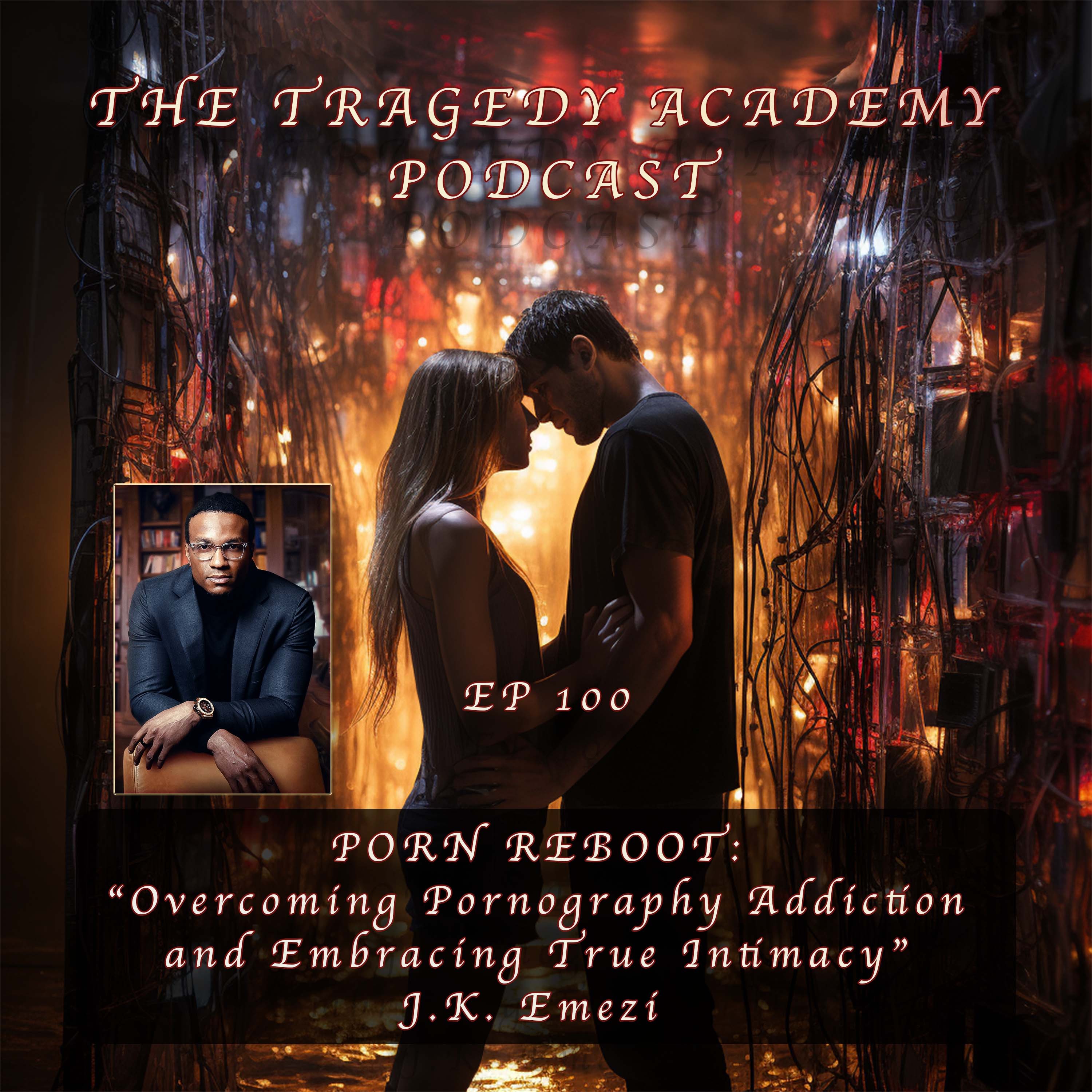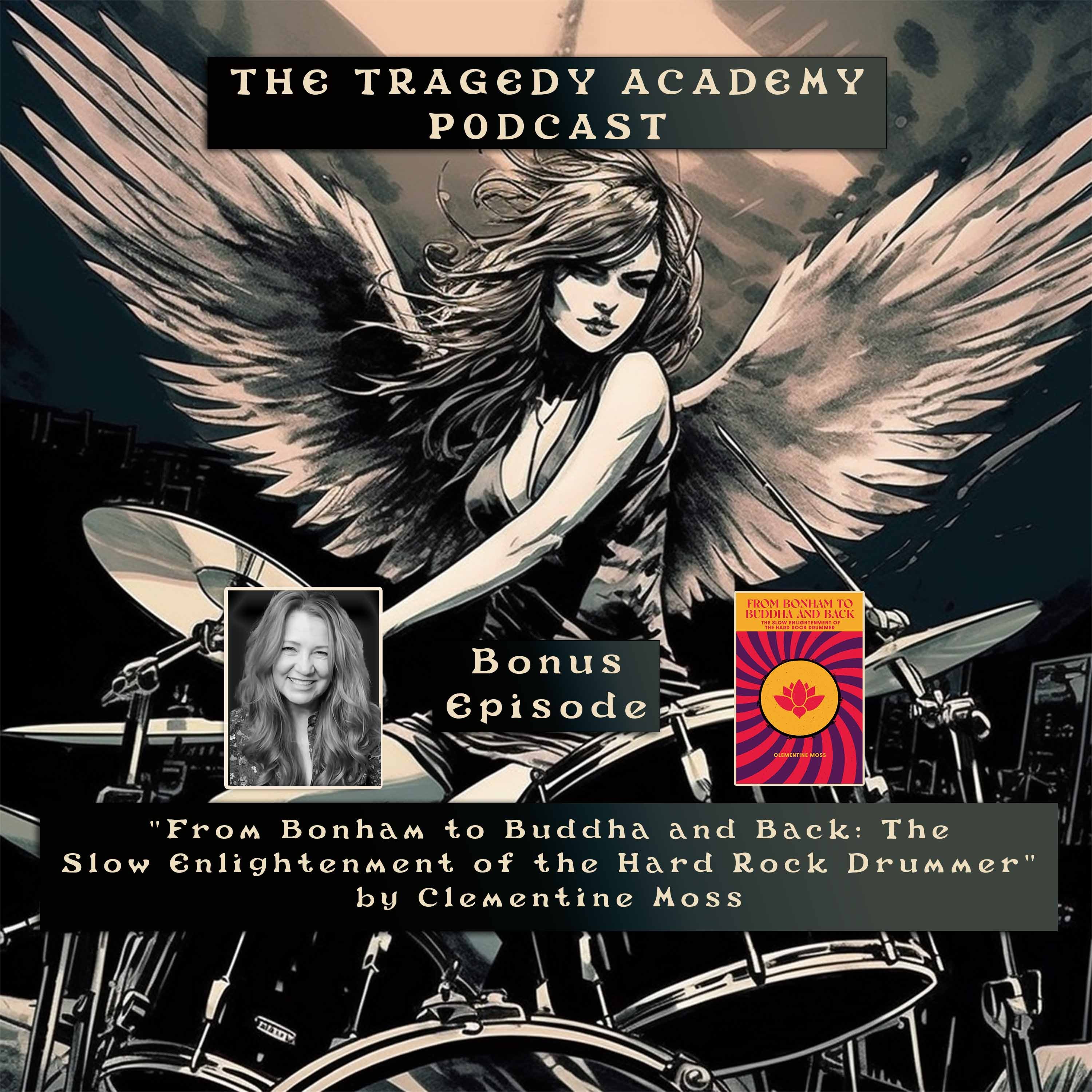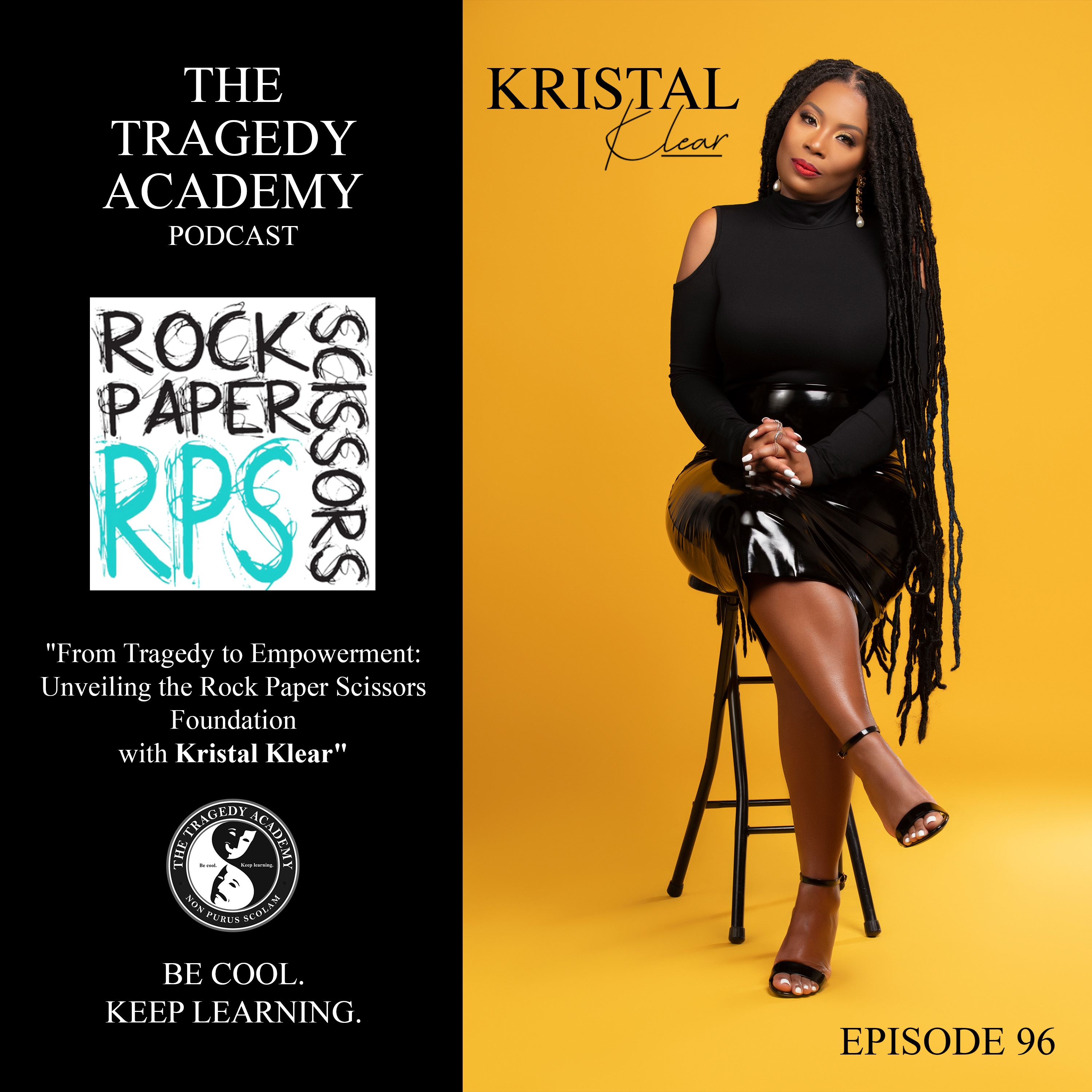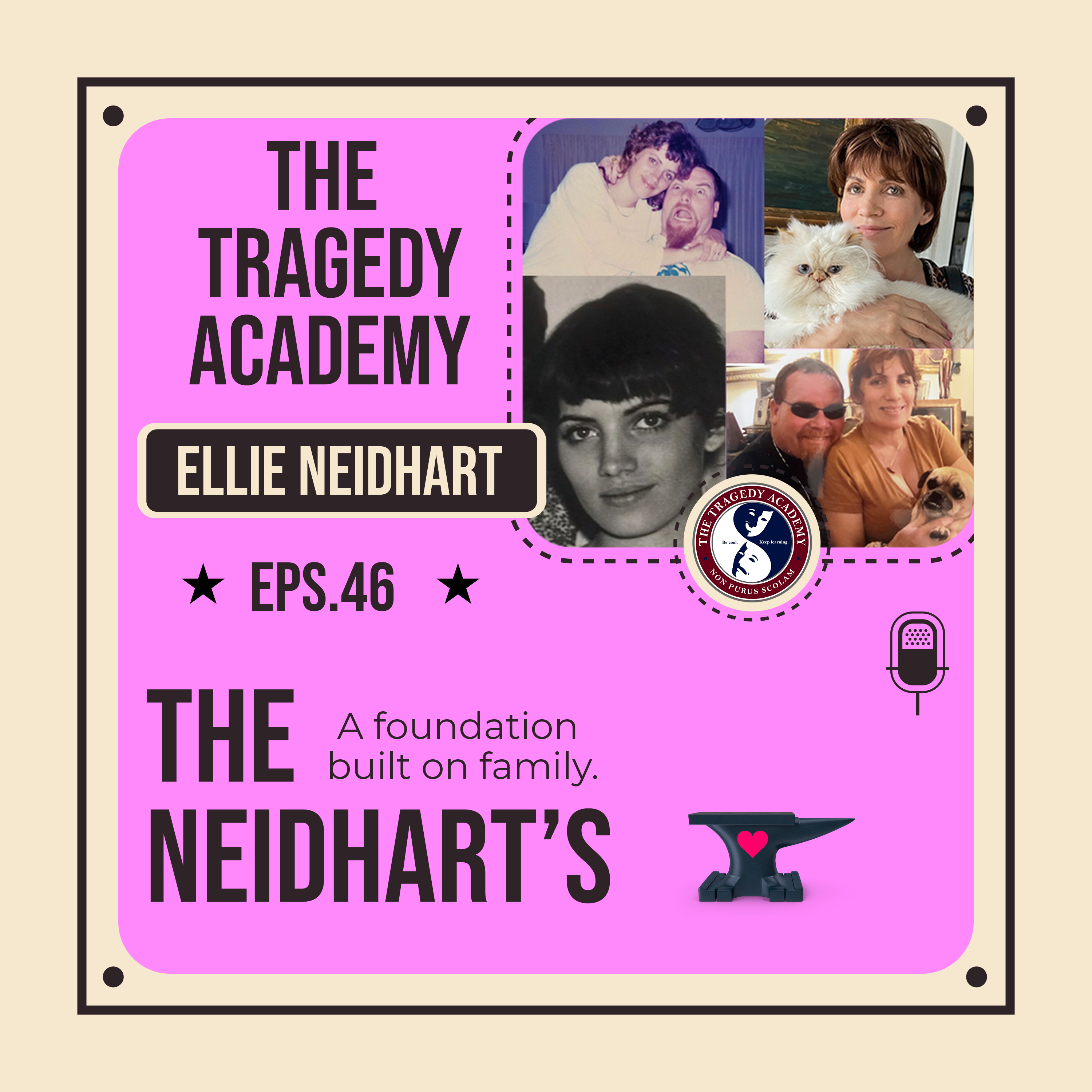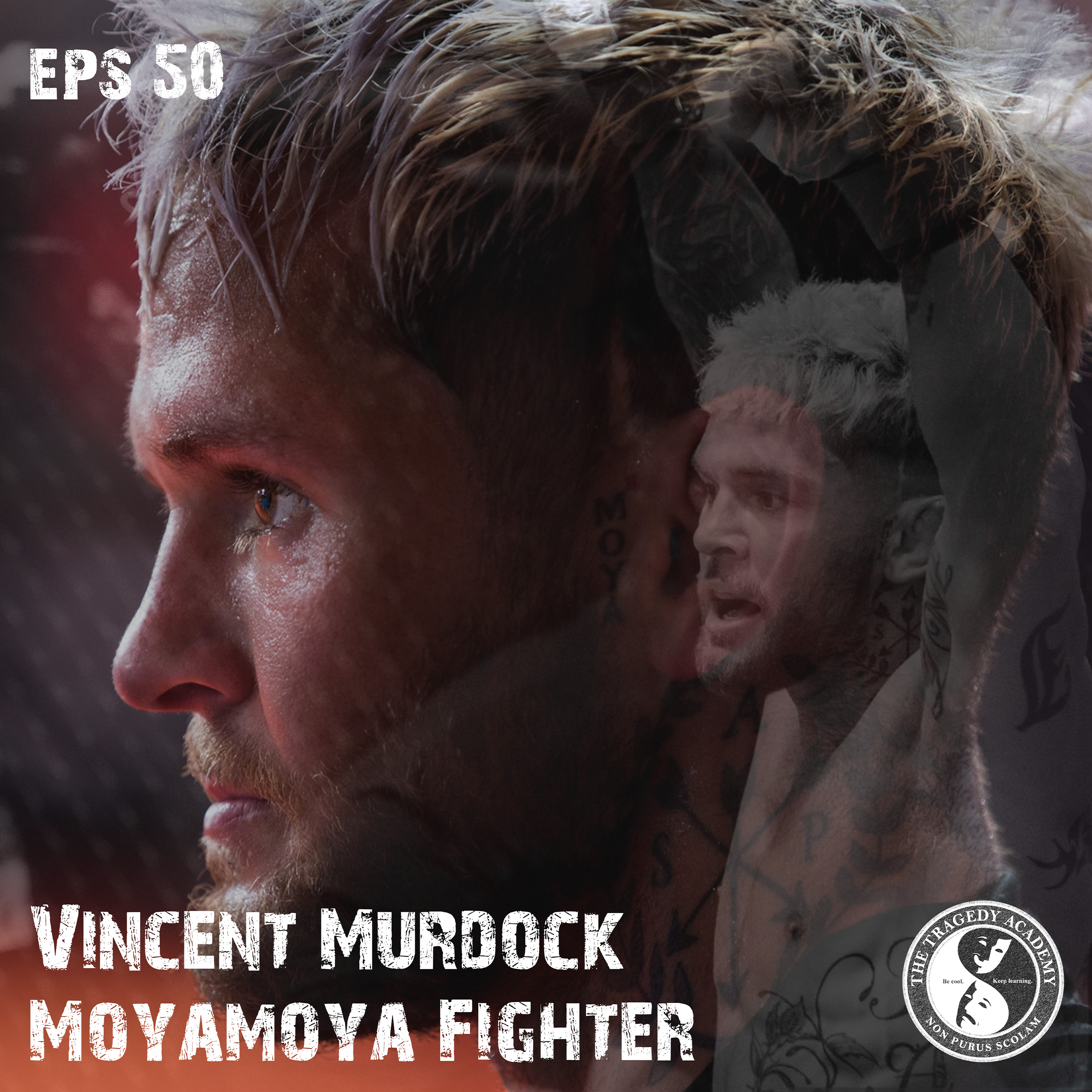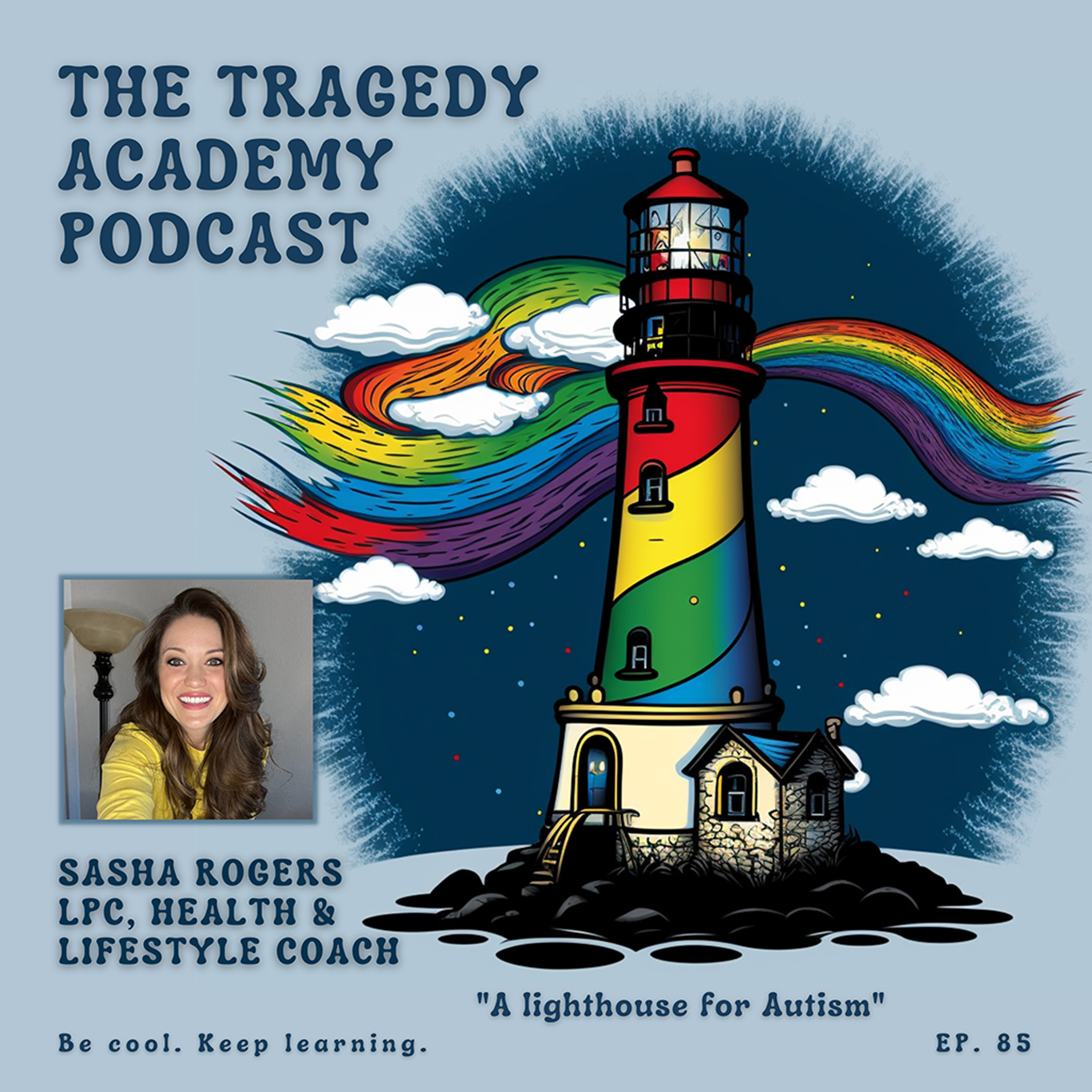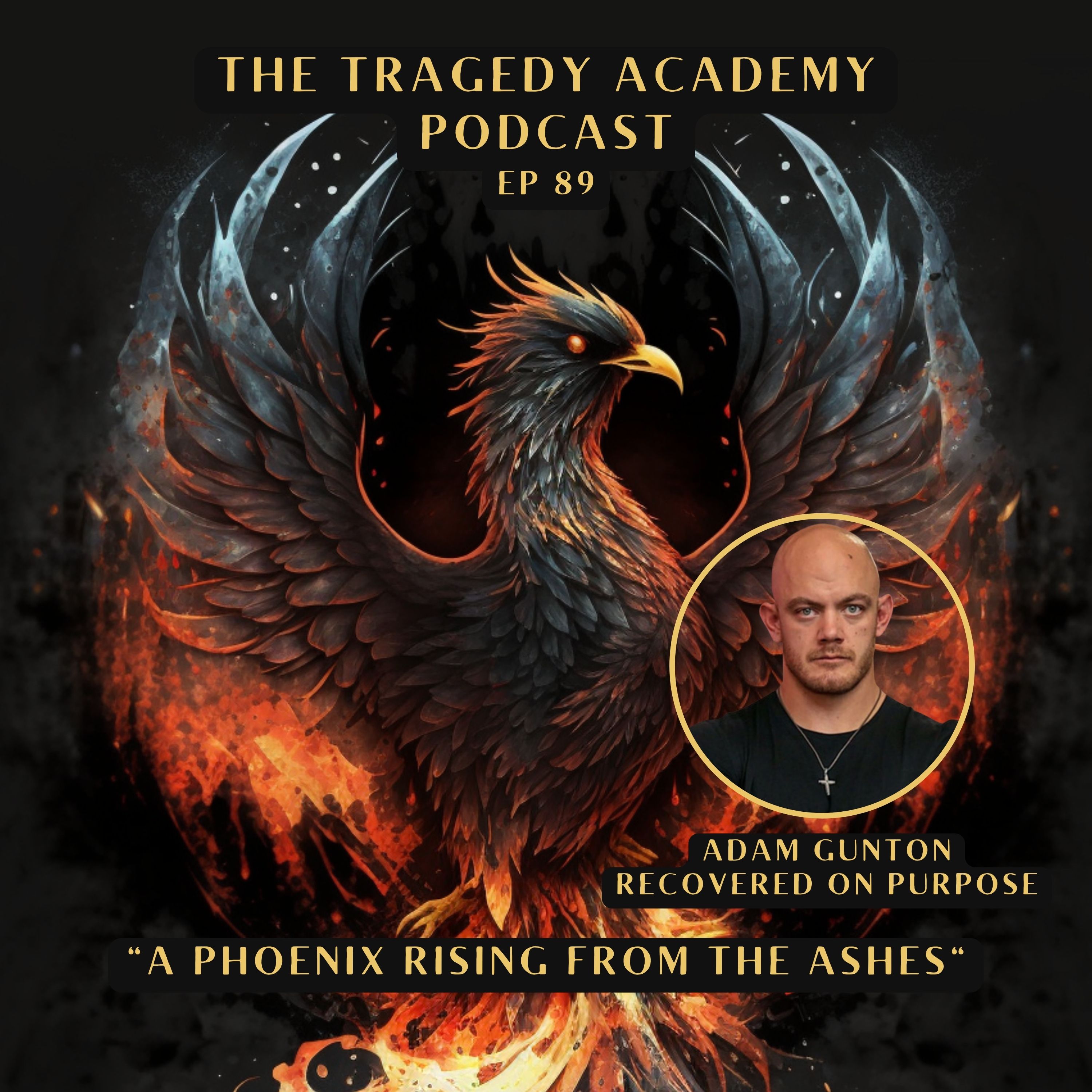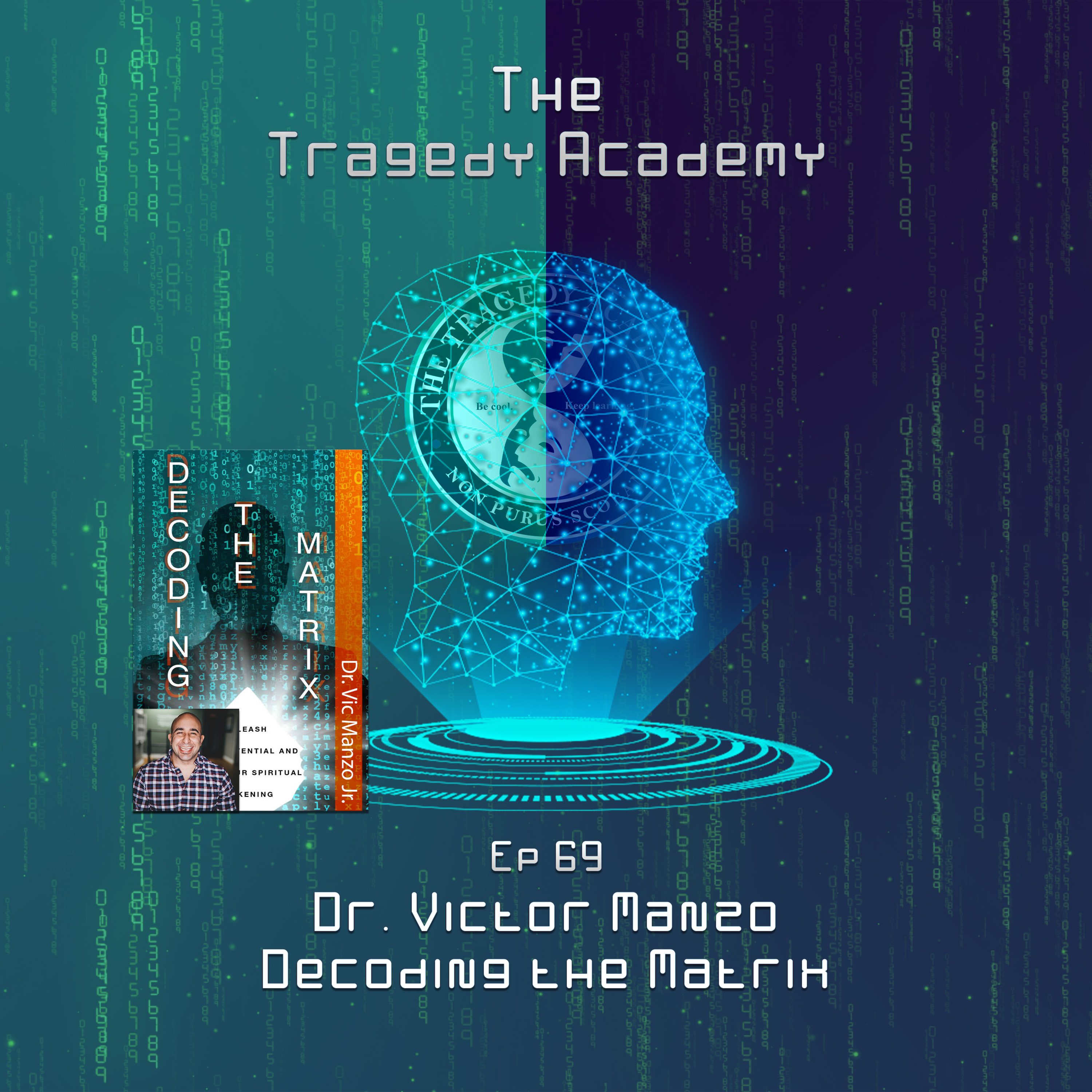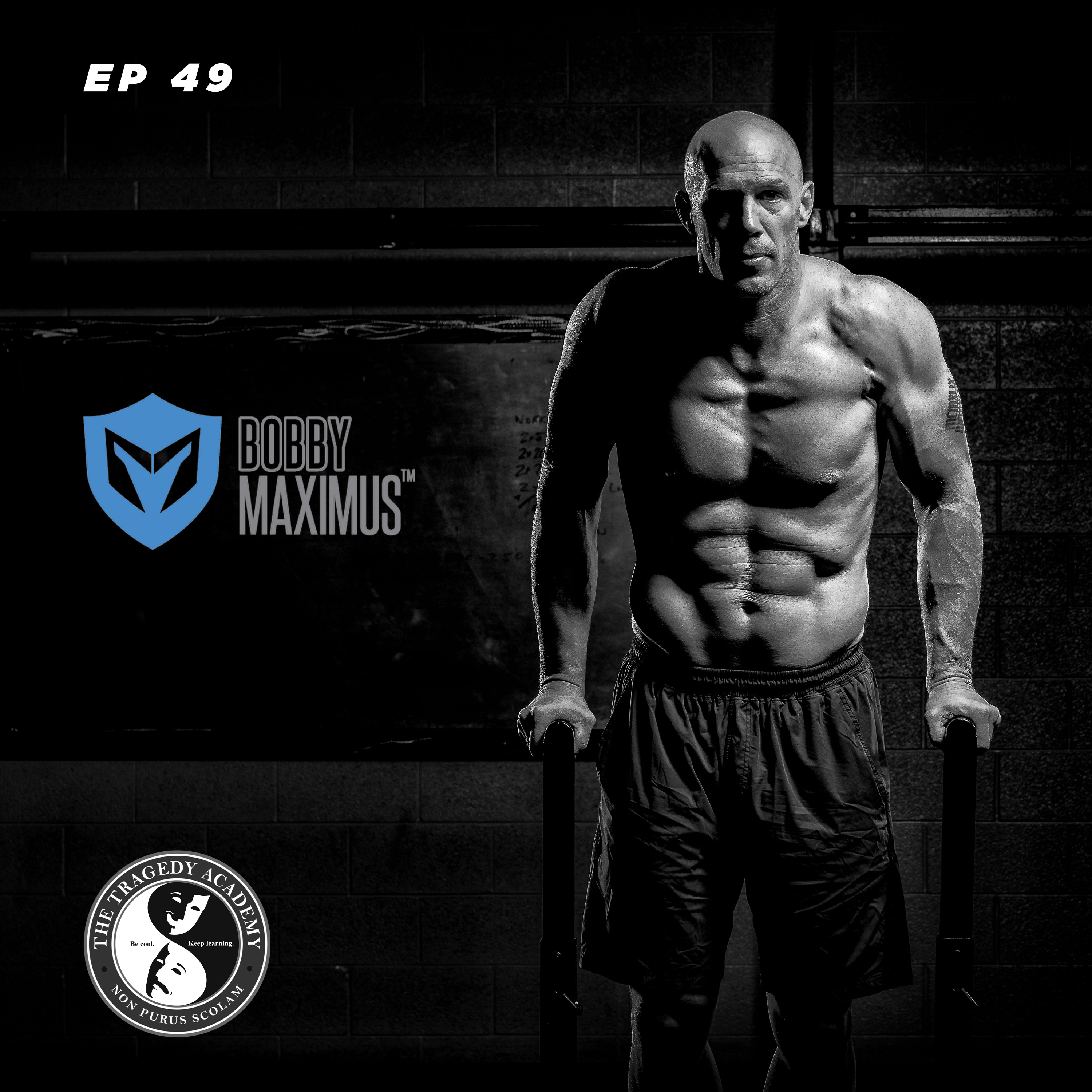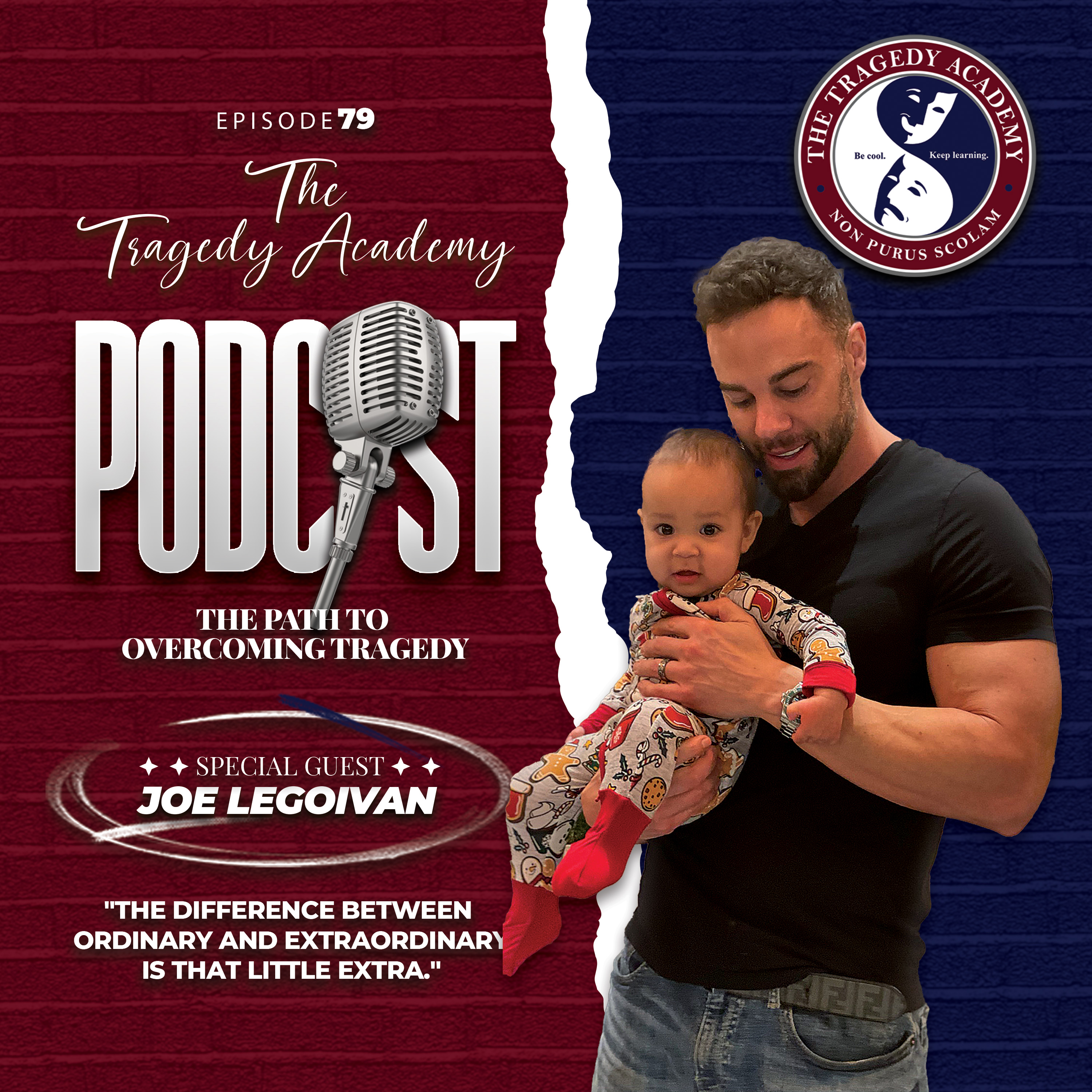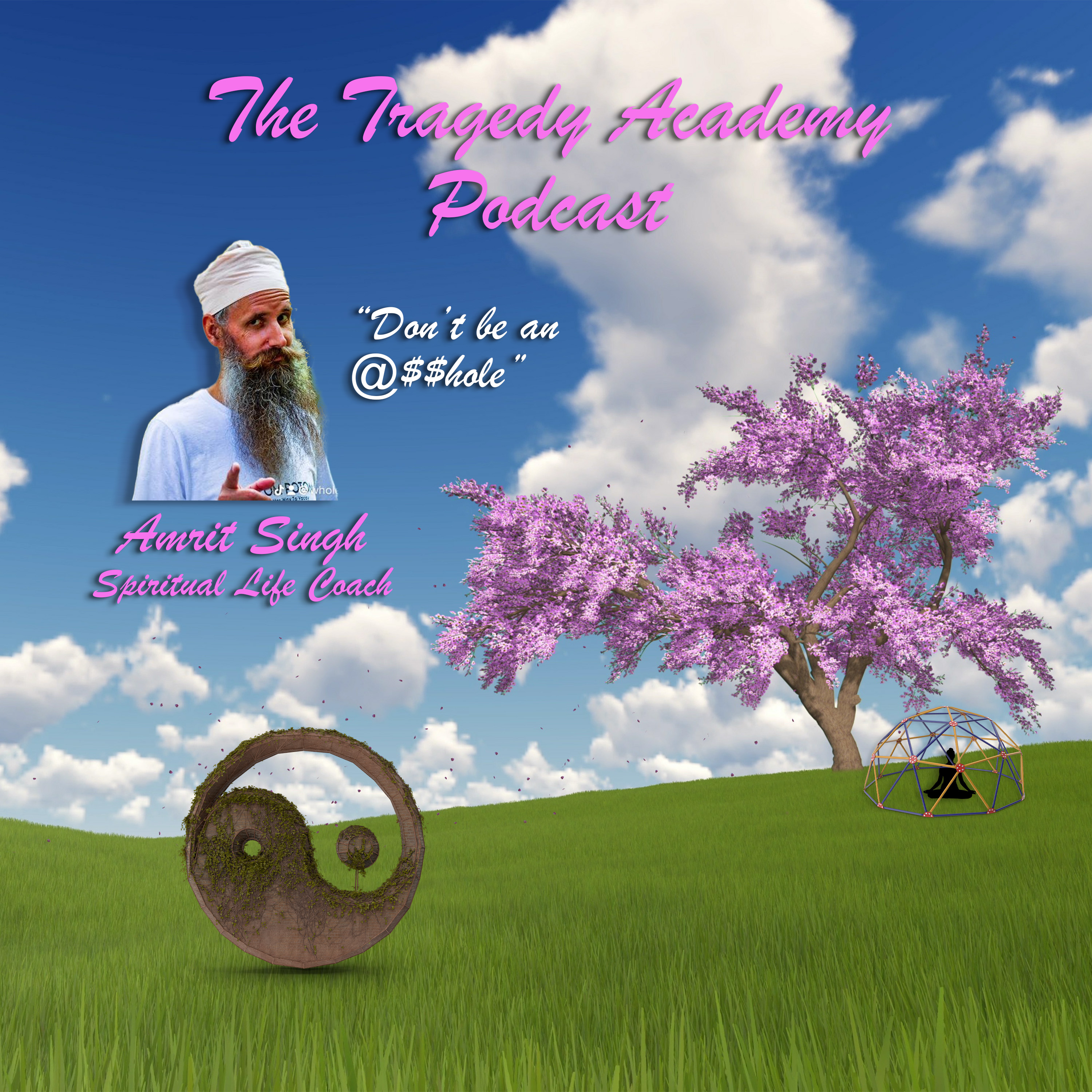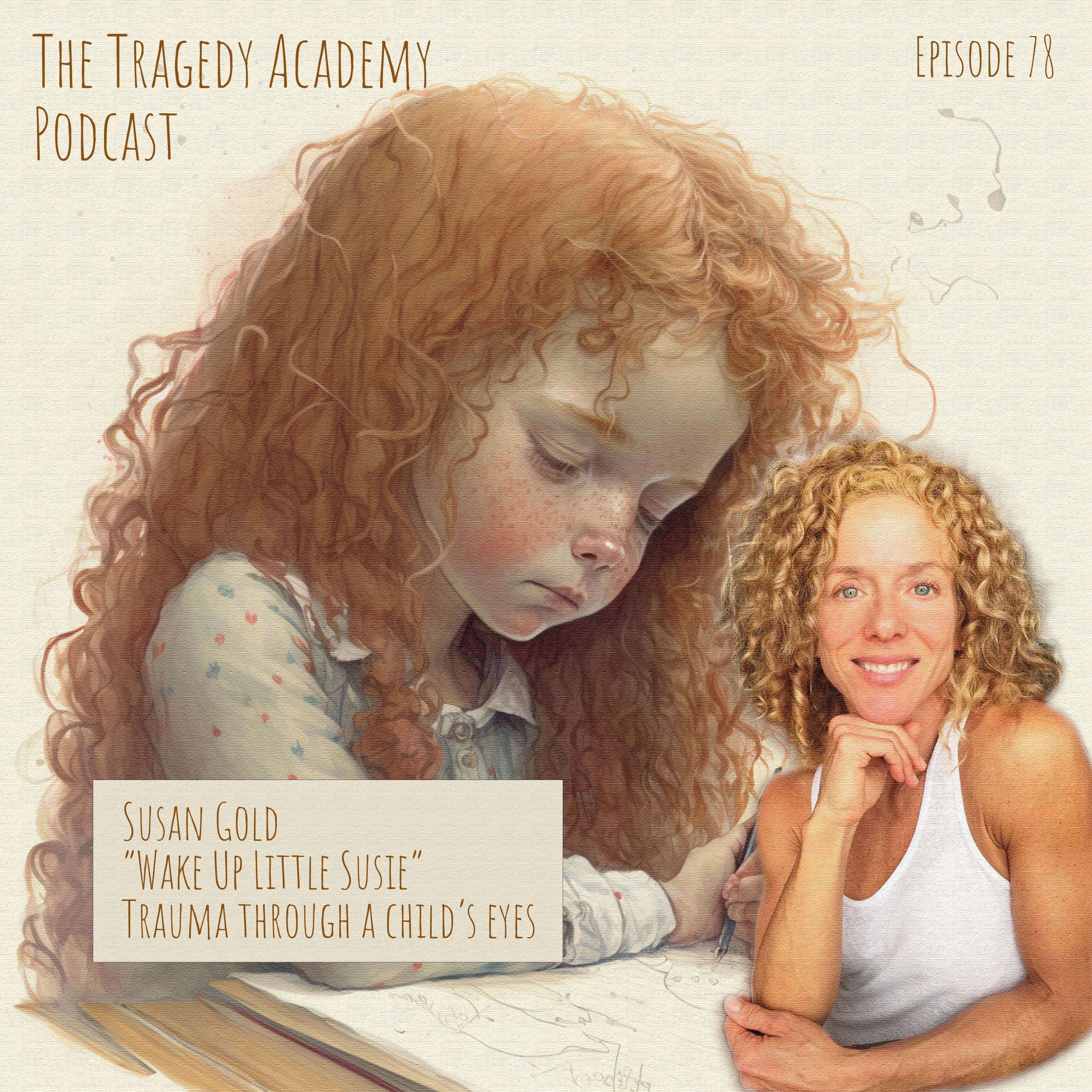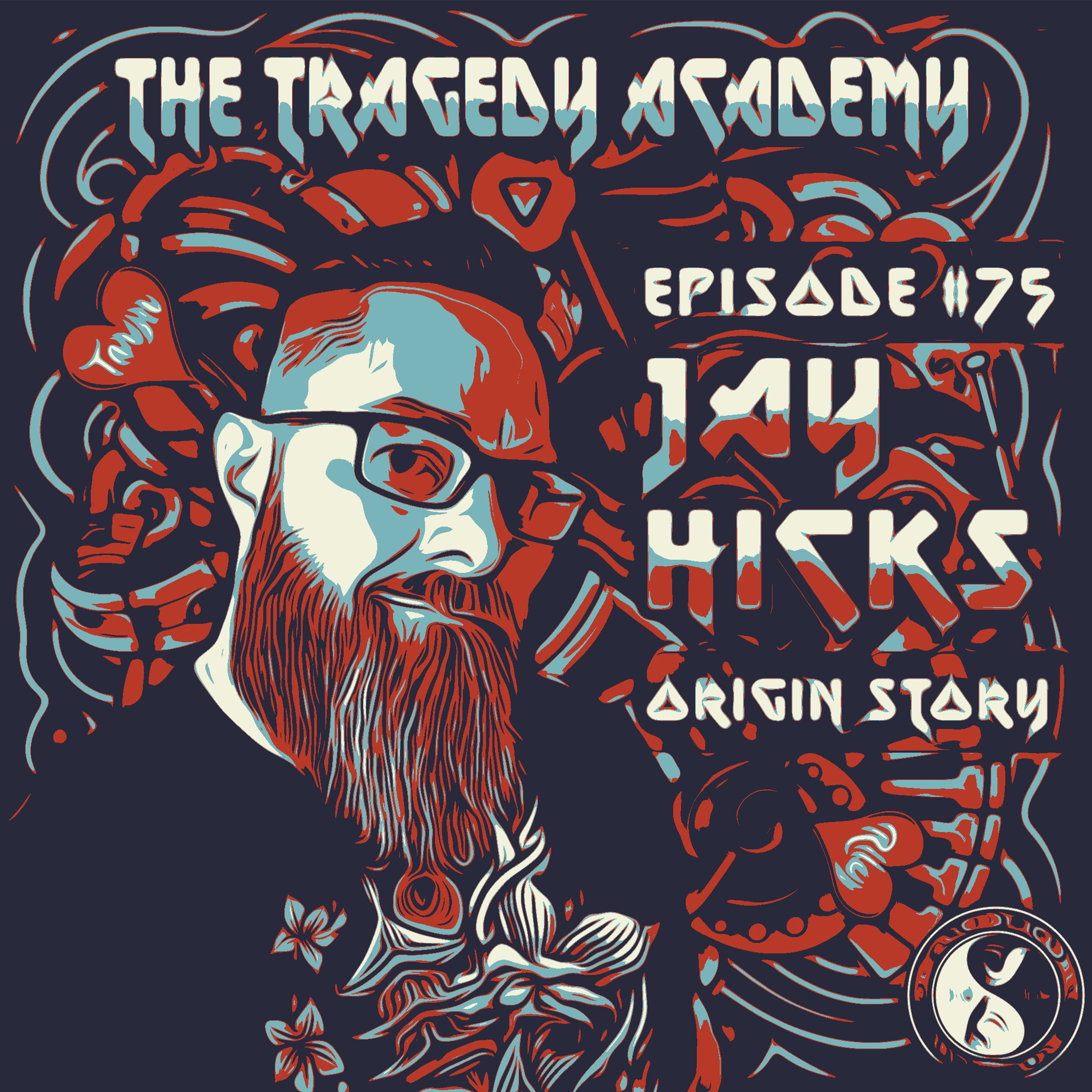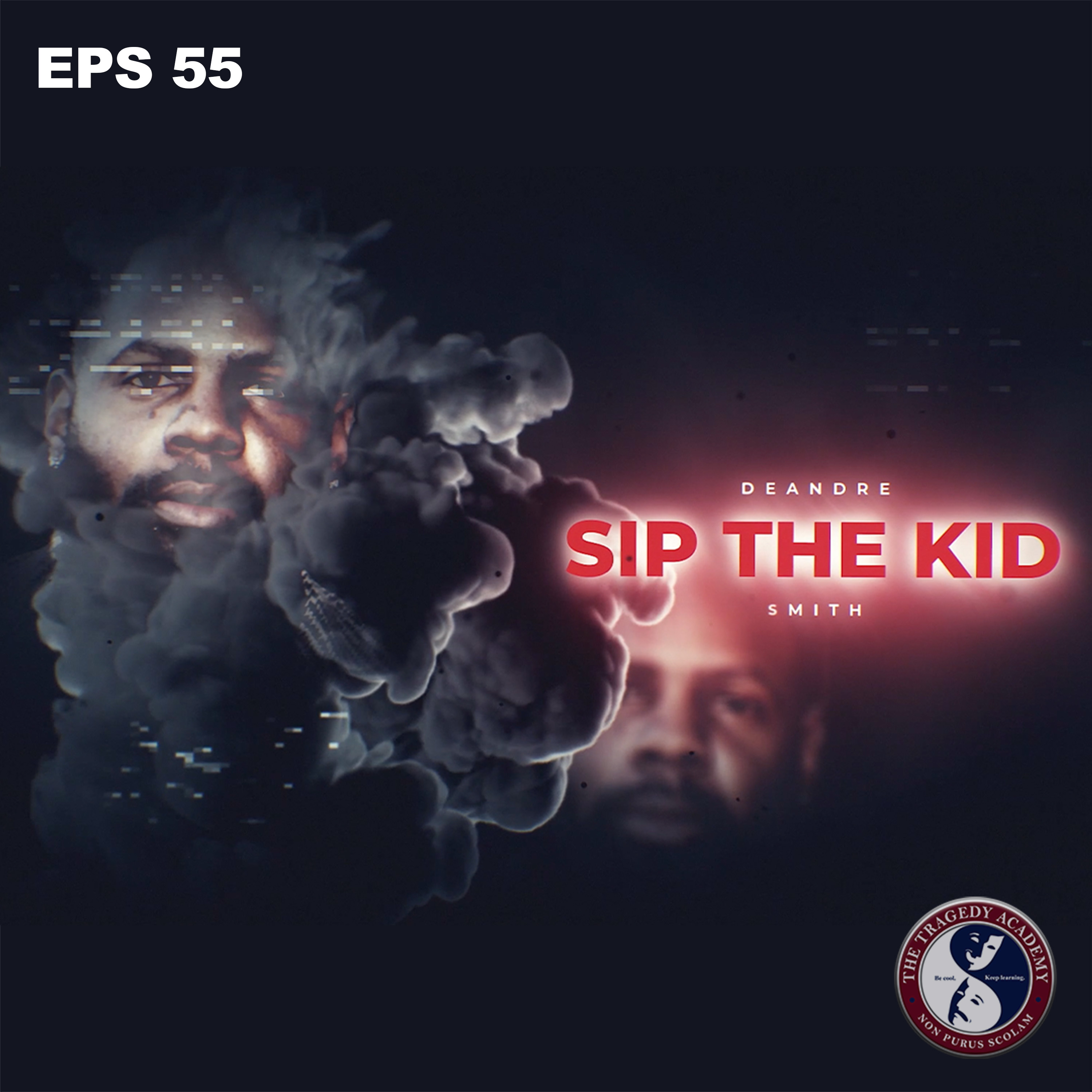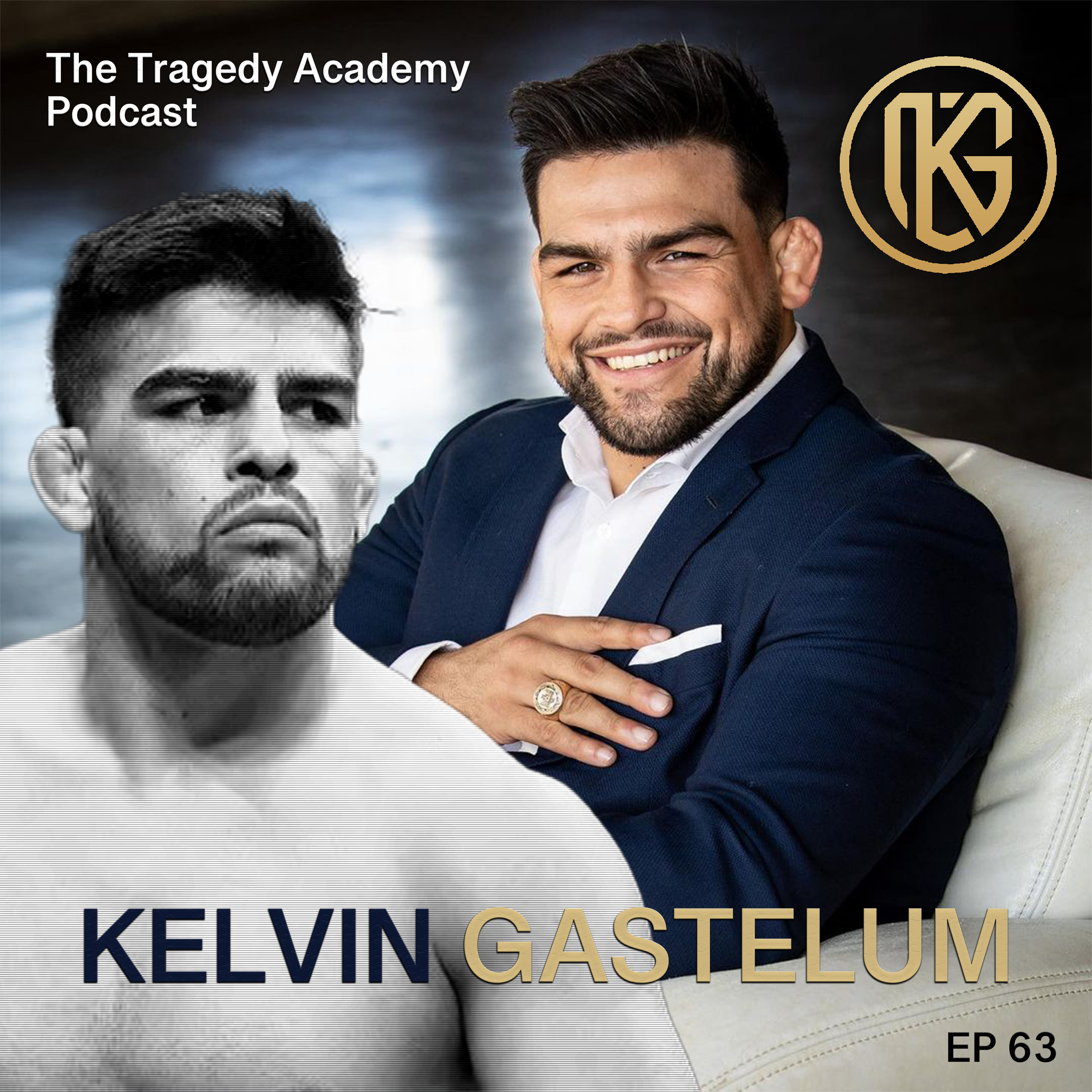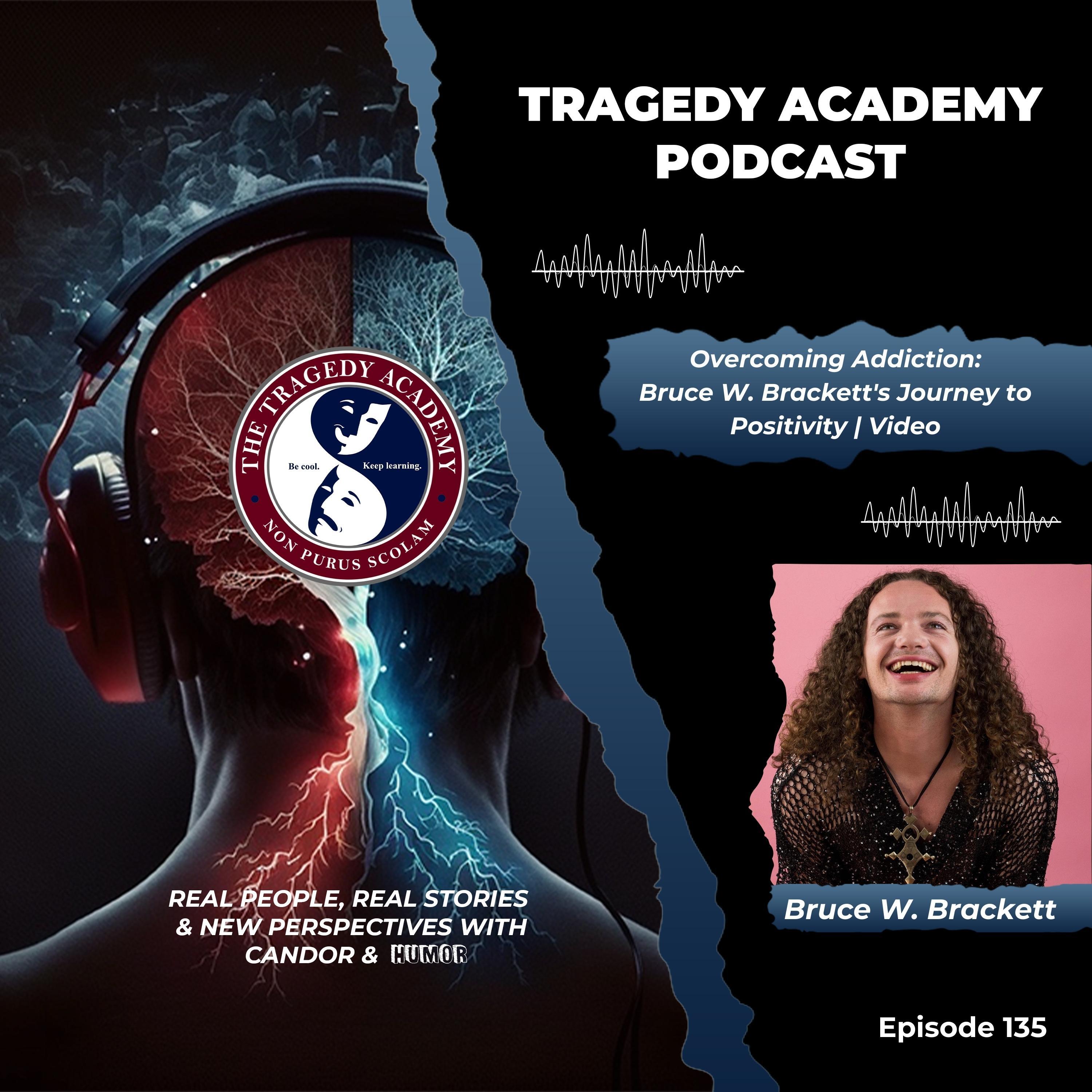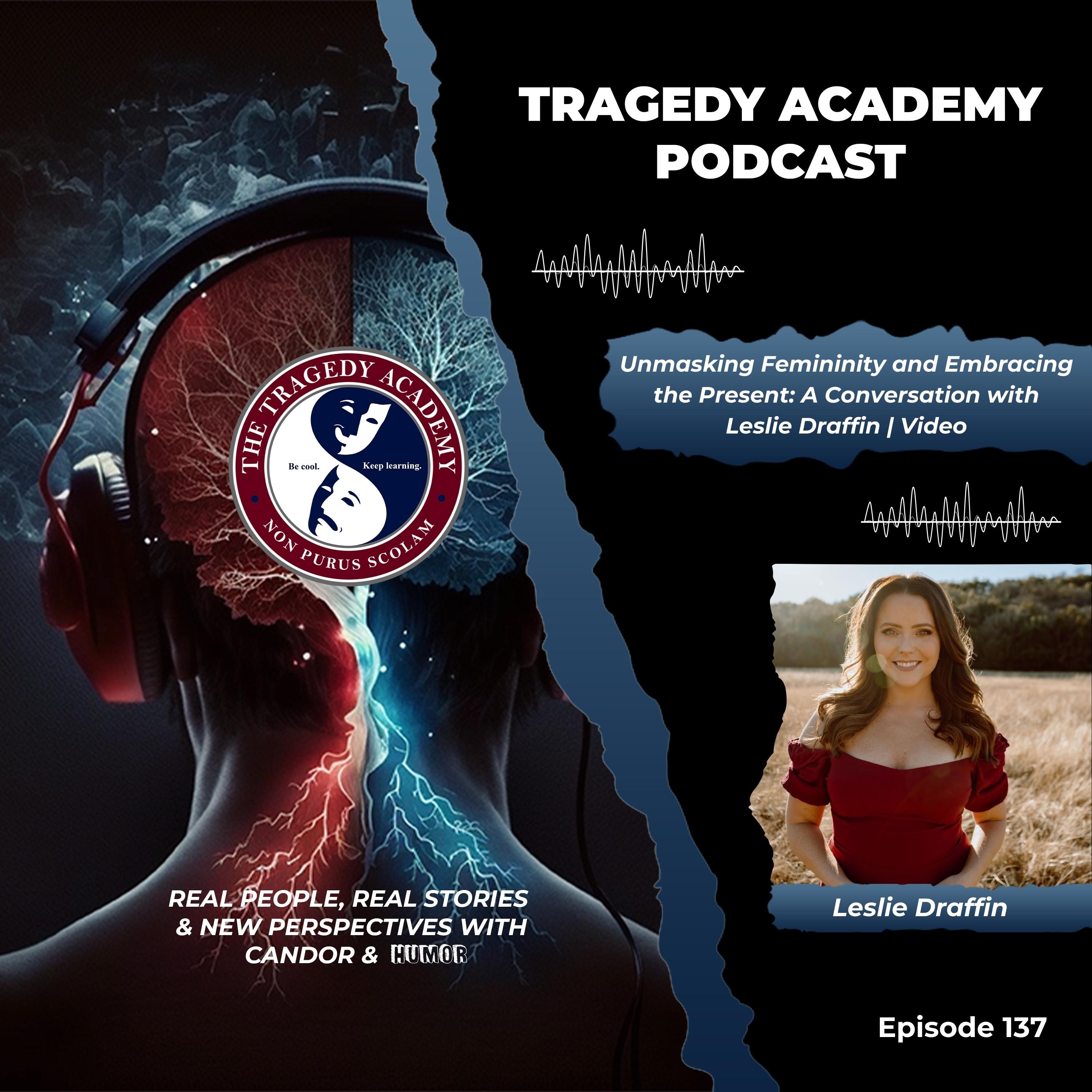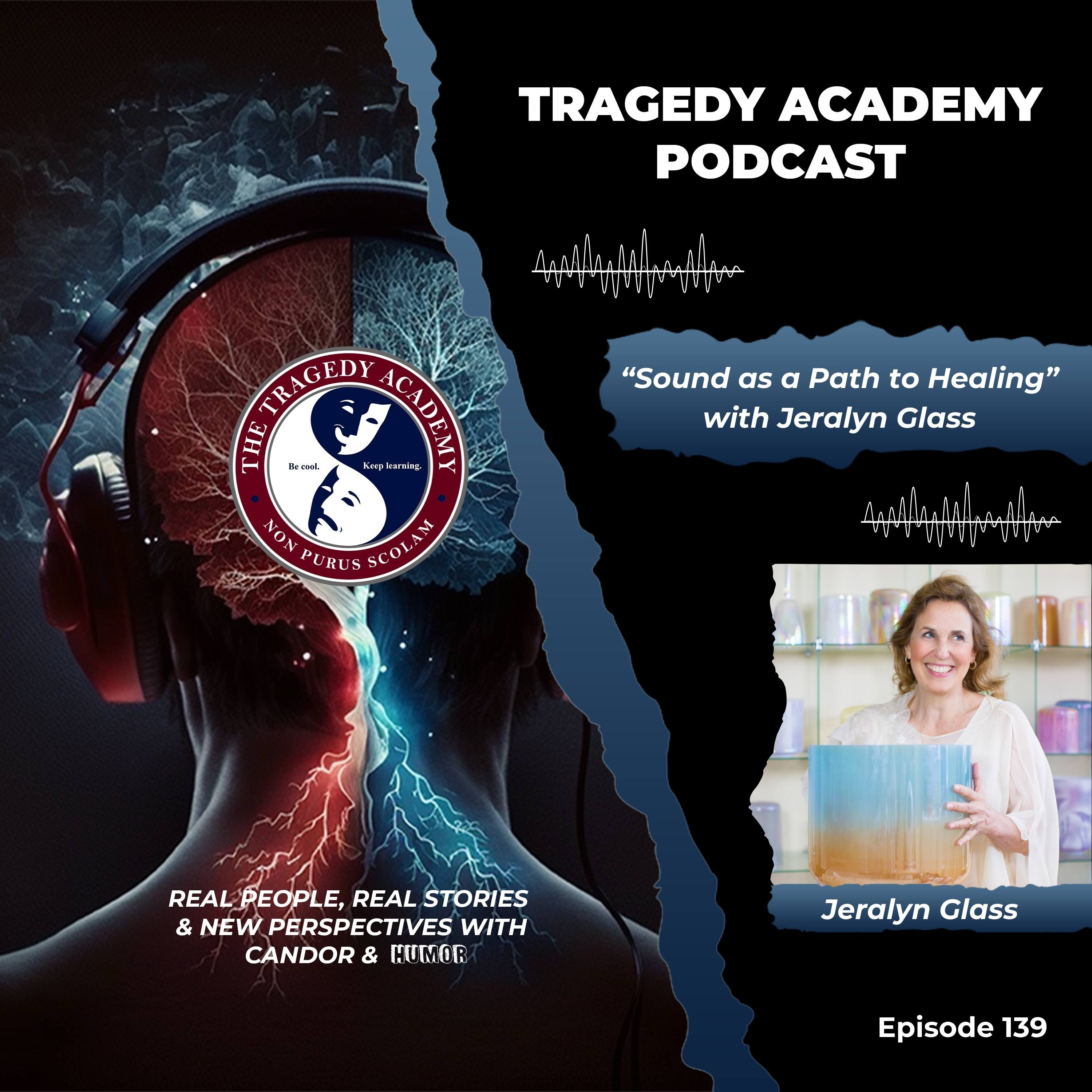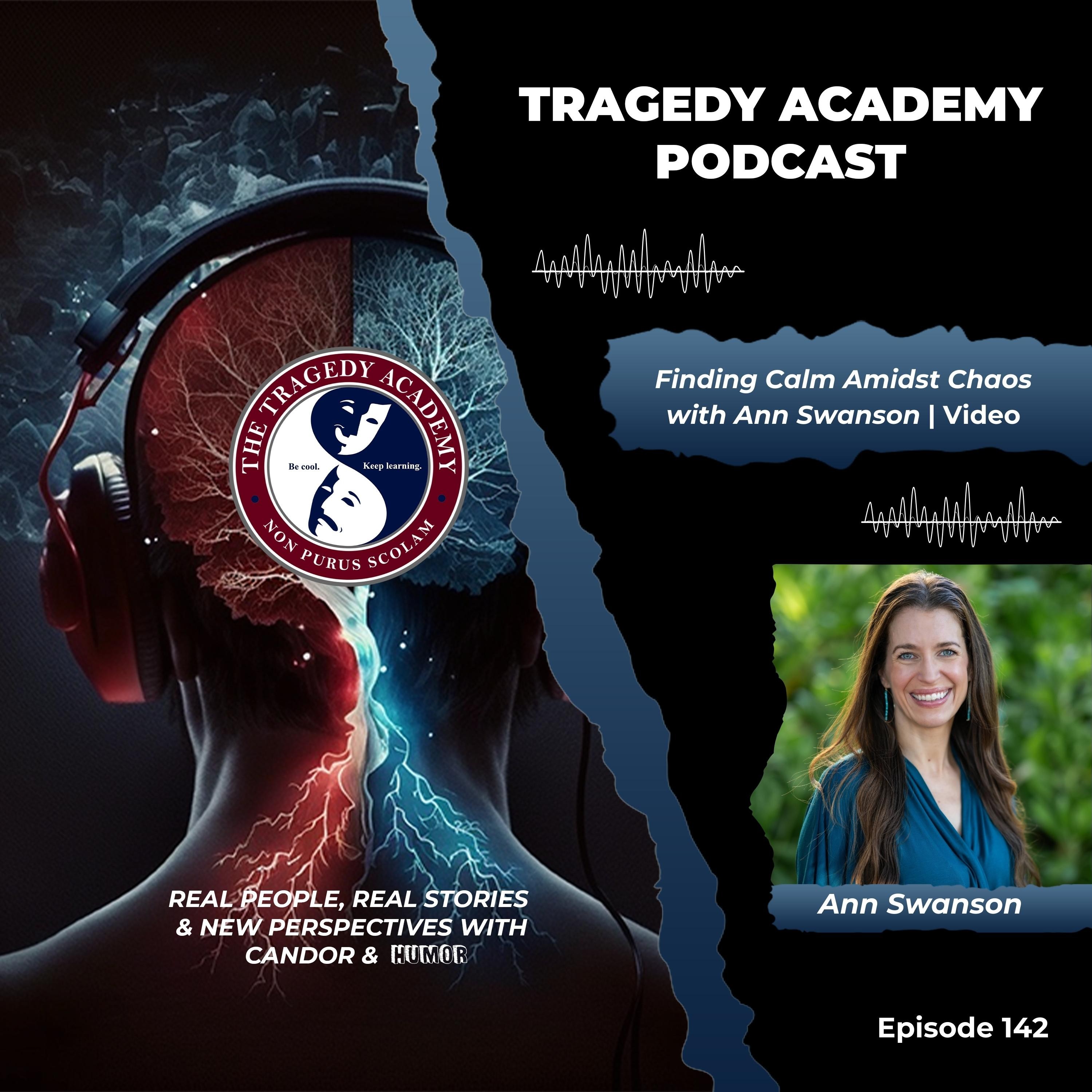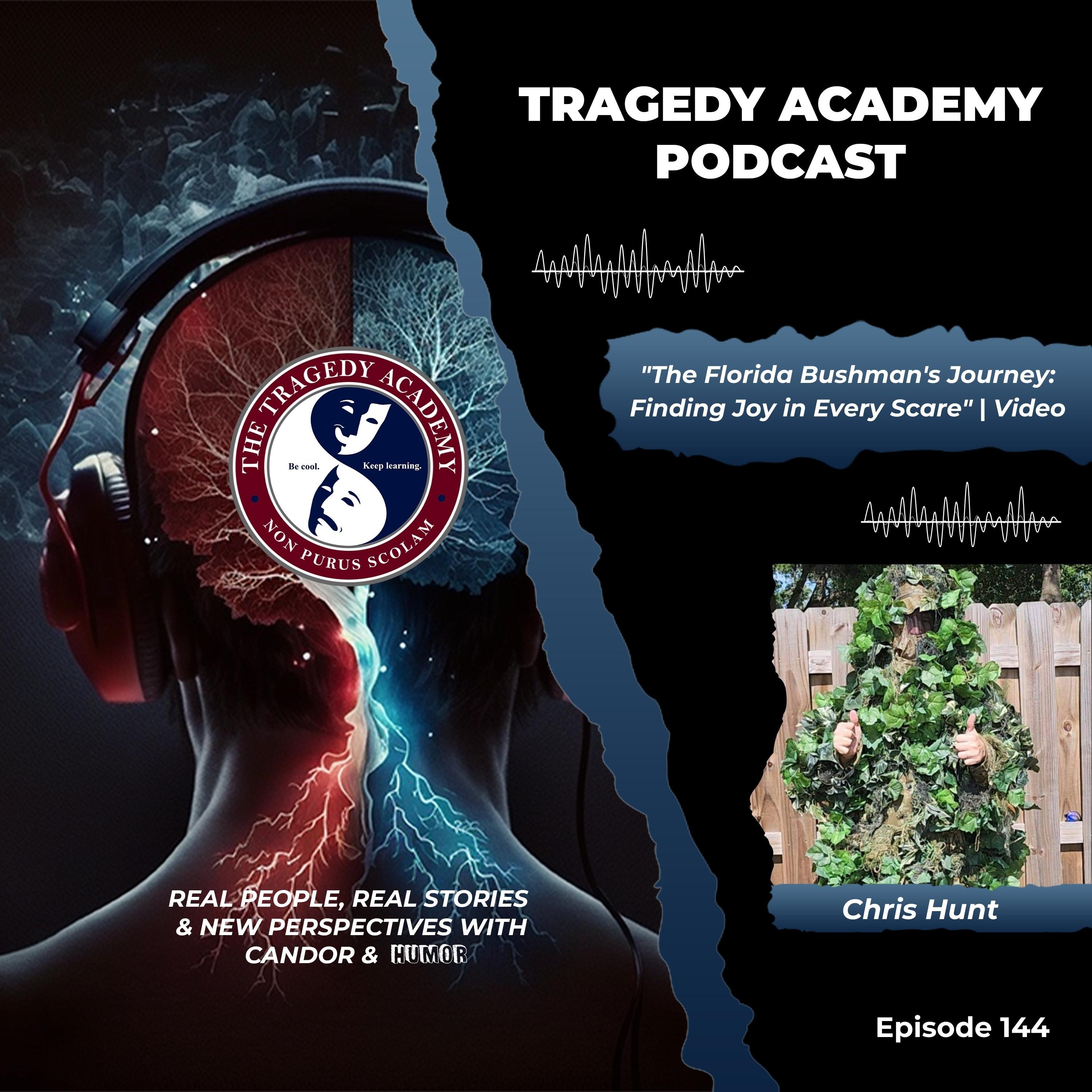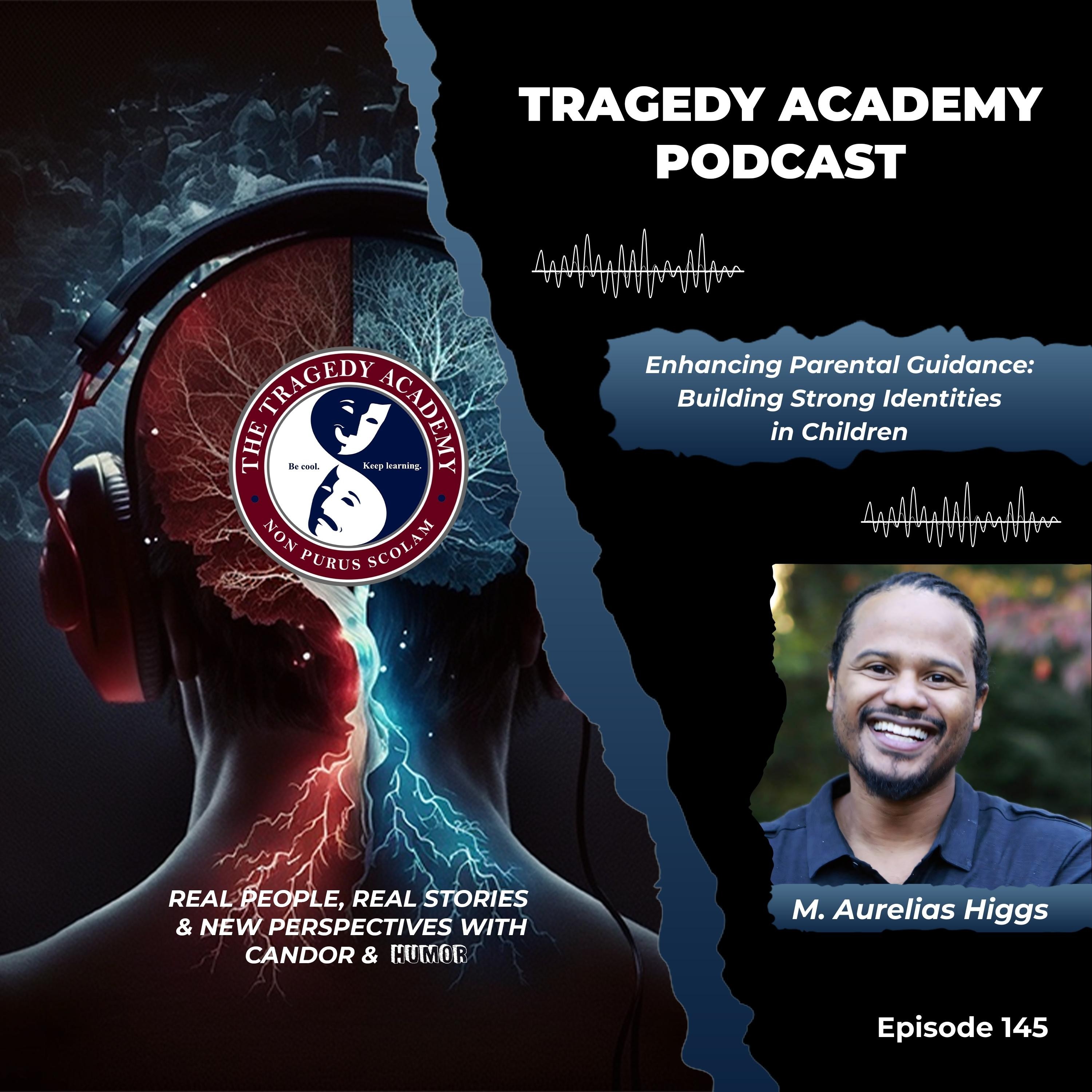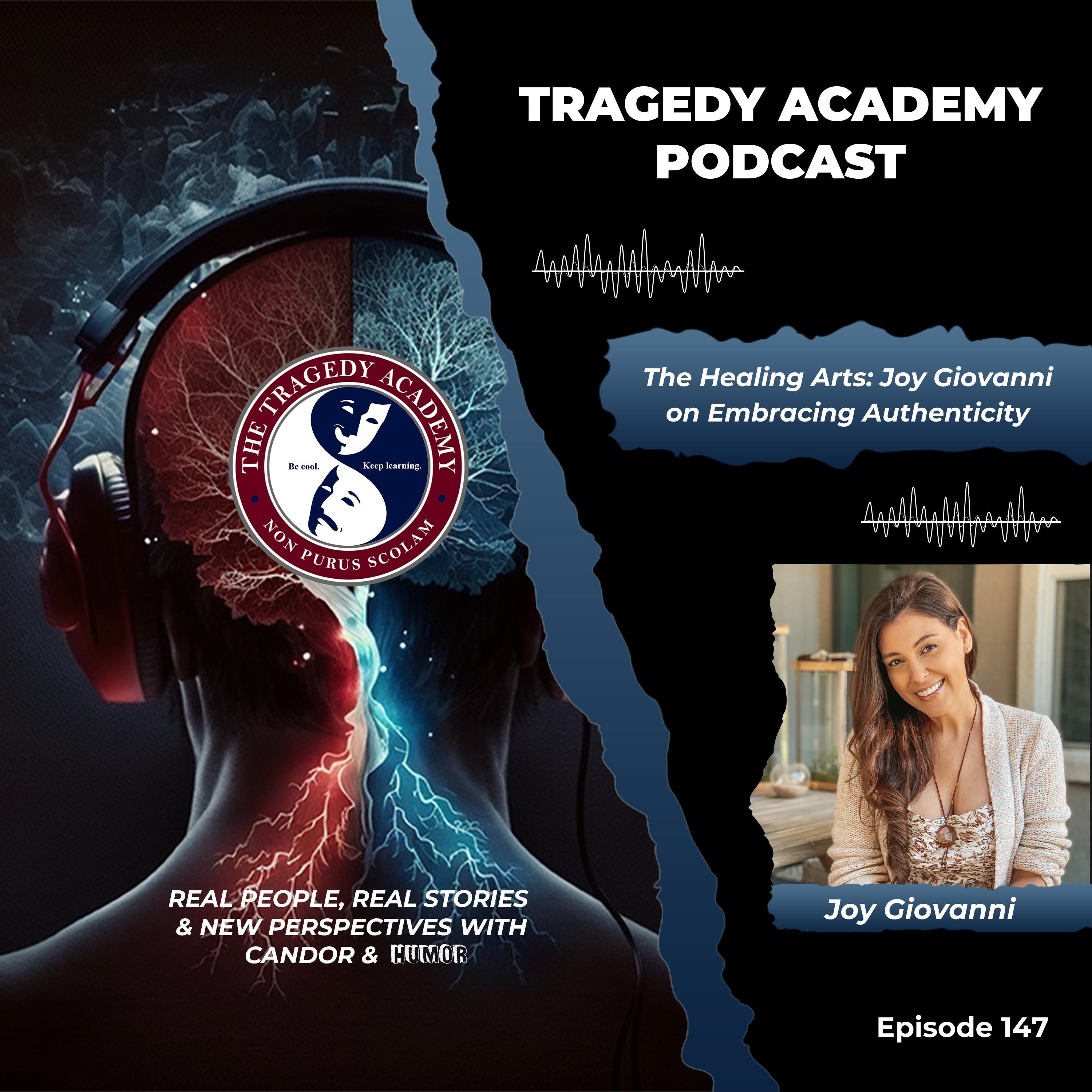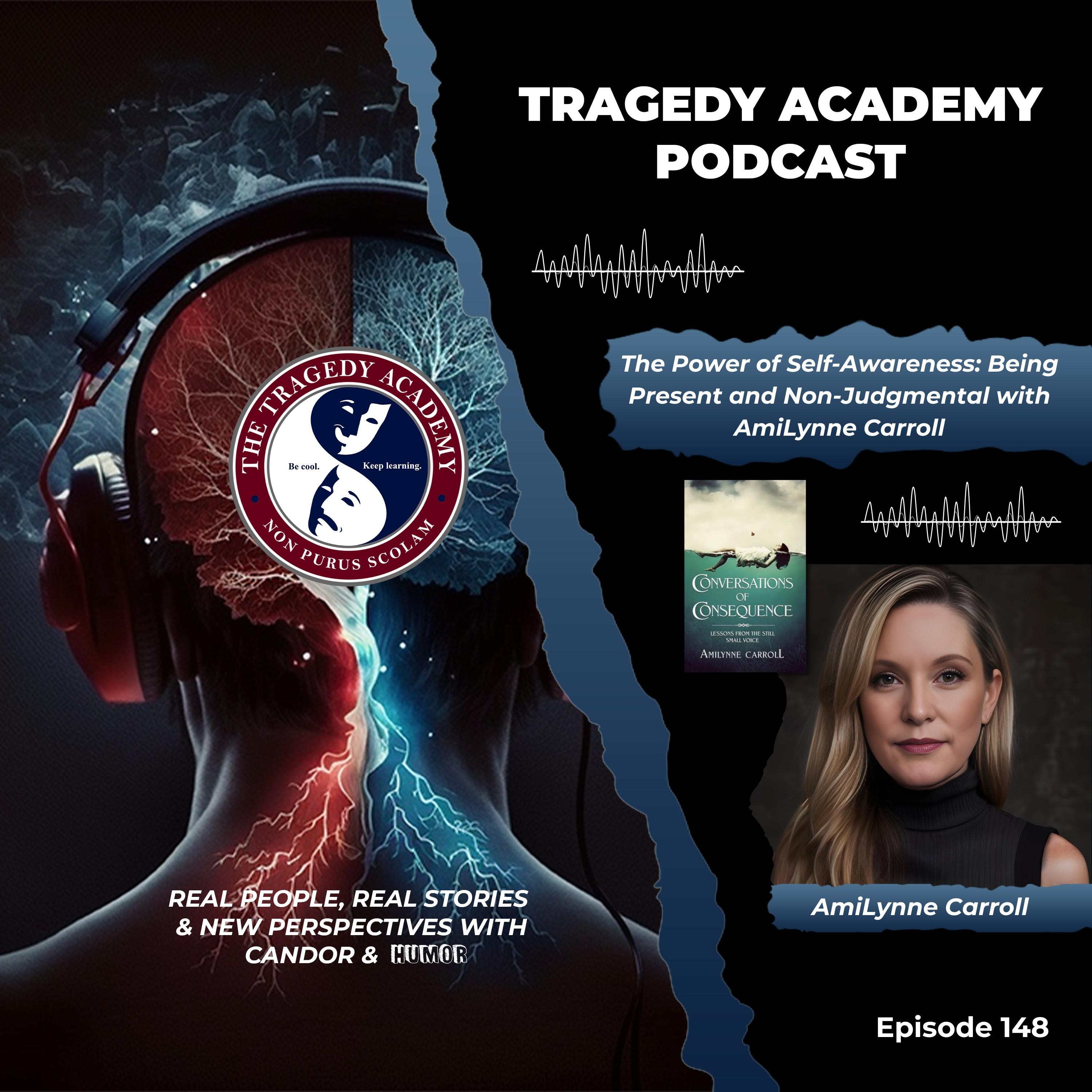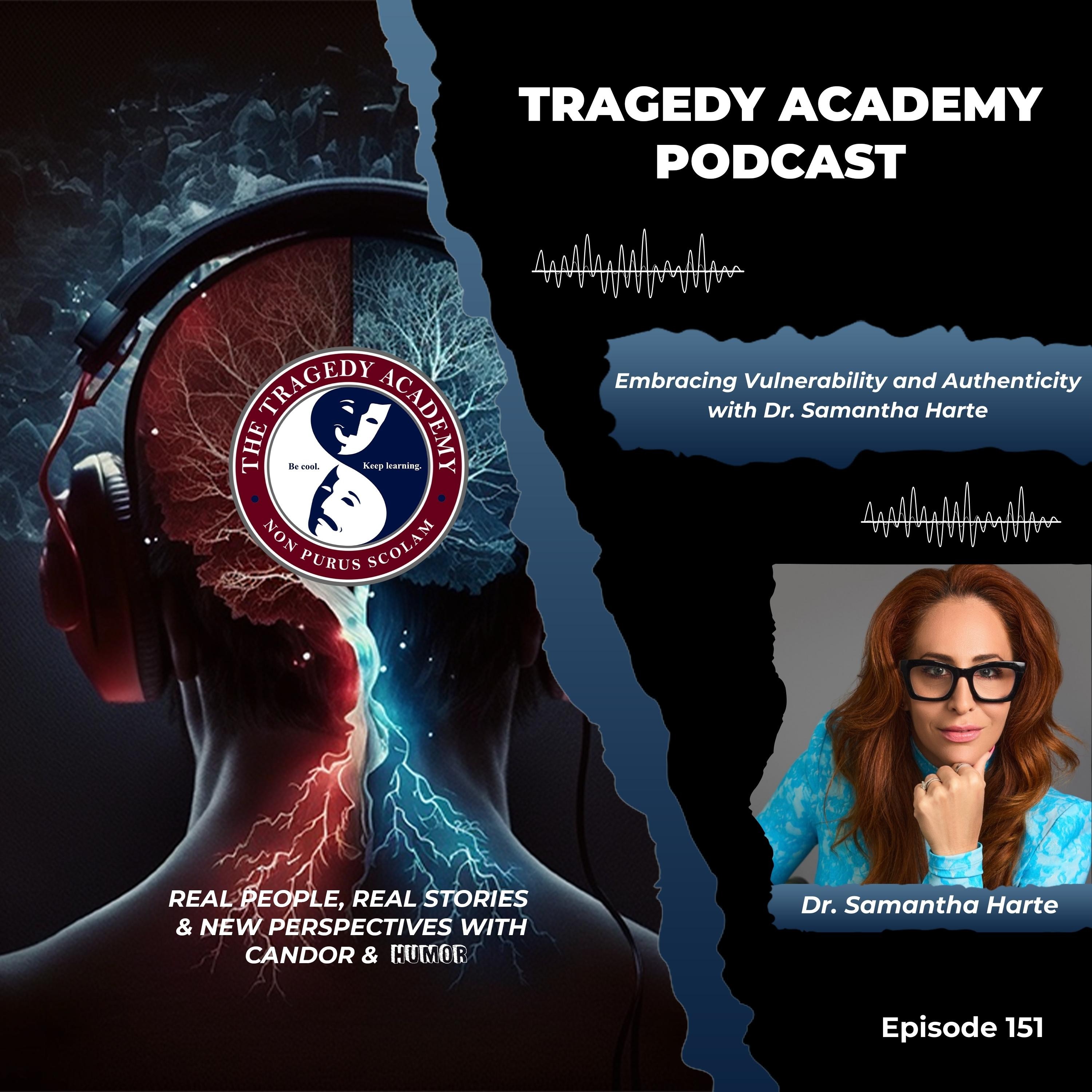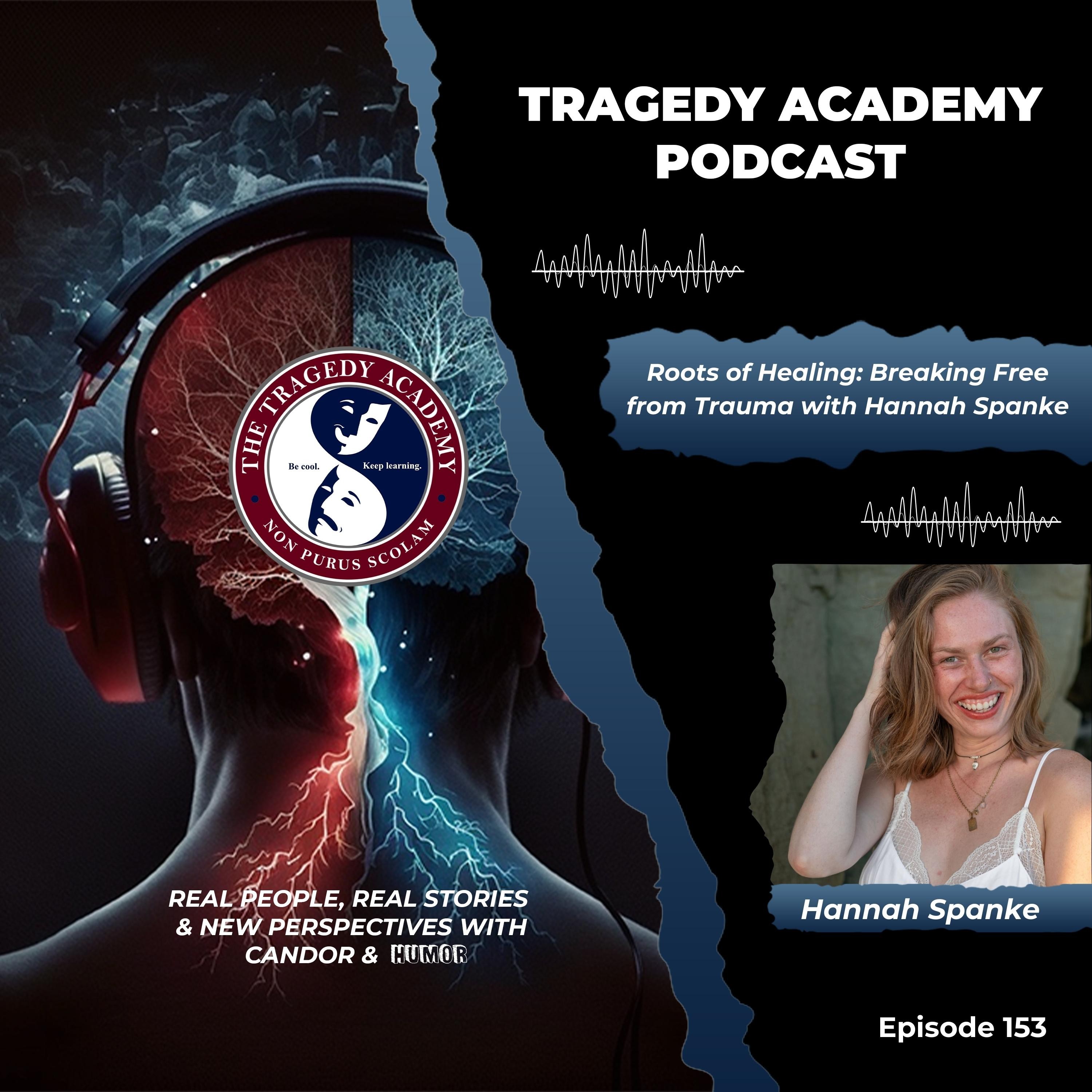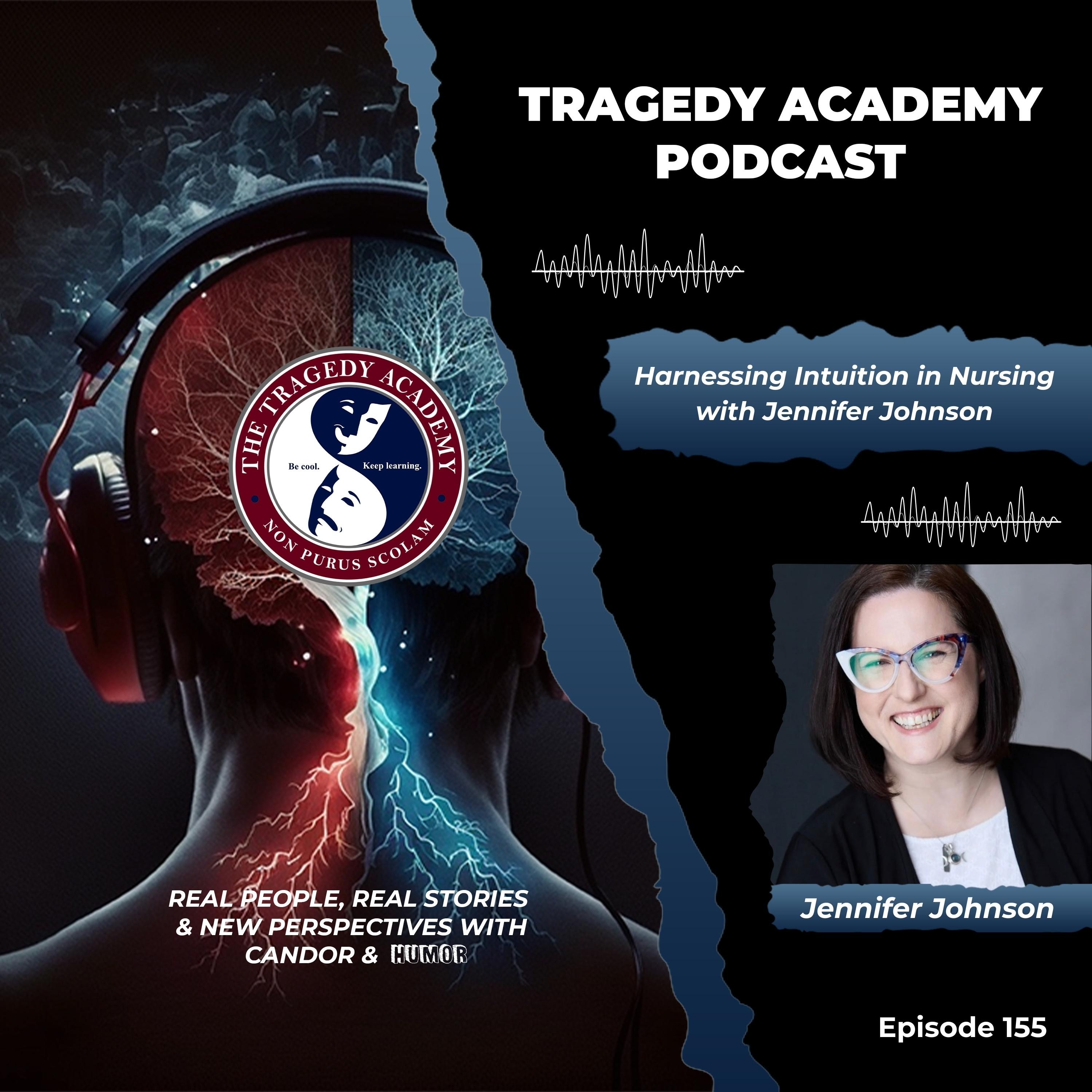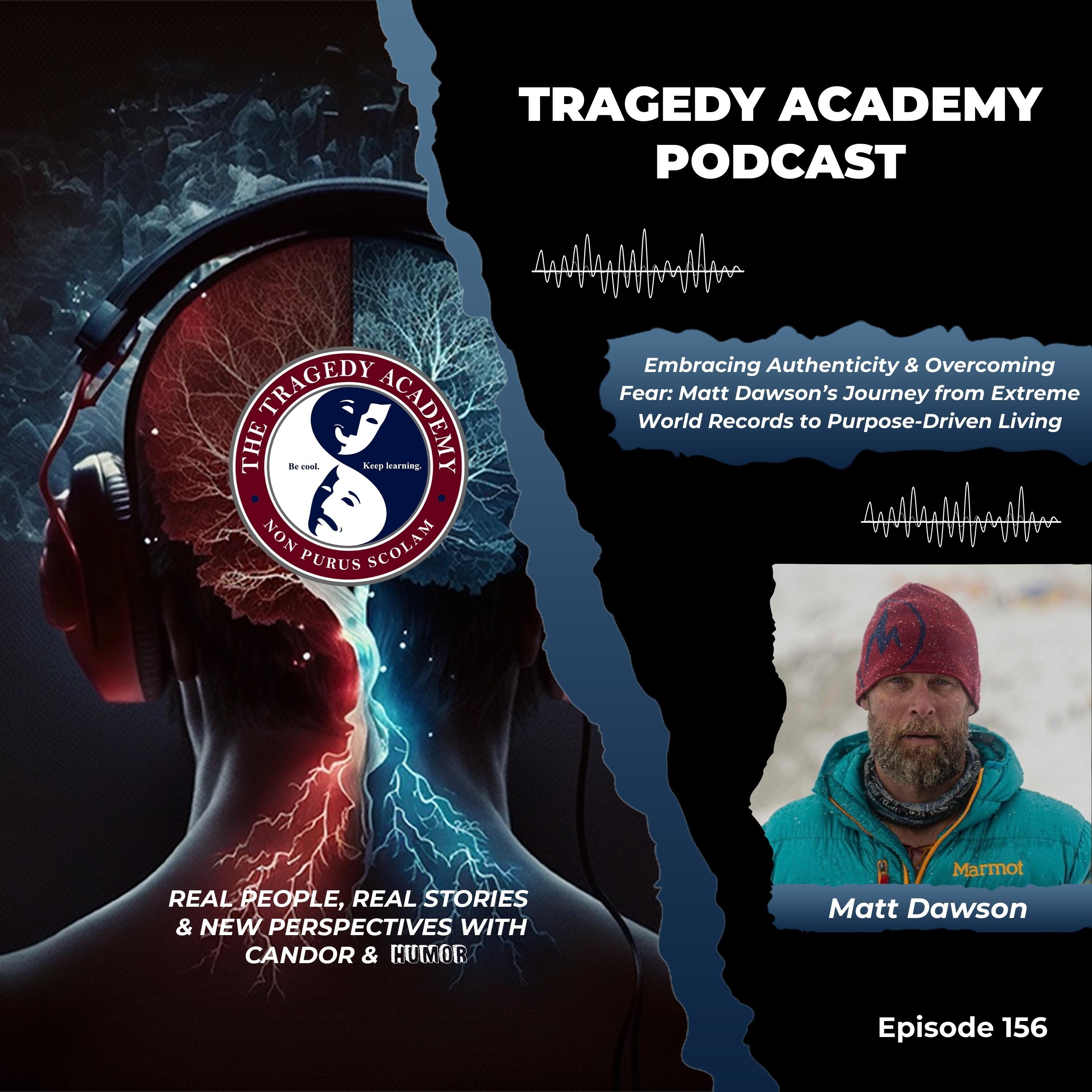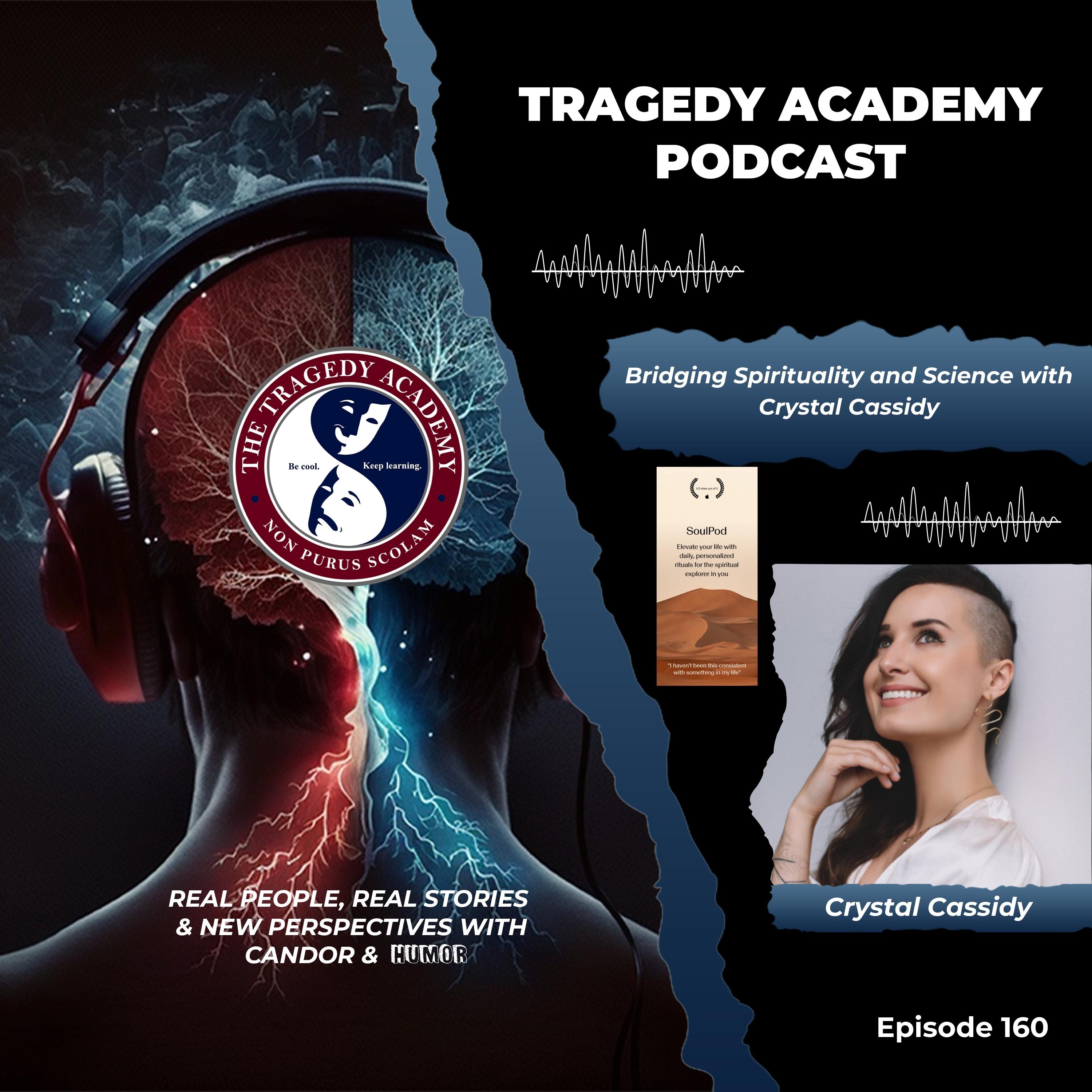Deborah Driggs - A Healing Path

Everyone, at some point in life, will be brought down to their knees because of pain and suffering, no matter how much they endure it. But it’s not the end; that moment can be the time for your life to change. Tune in as Deborah Driggs discusses how she overcame her addictions and entered the worlds of real estate, investments, and insurance despite being in her 40s, broke, and having three kids to support.
Summary:
Facing the time when we lose hope and are brought down to the ground is frightening. Discover how we can defy adversities and rise from our downfall.
Join actress, Playboy centerfold and cover girl, and top-rated insurance professional Deborah Driggs as she dives into her experiences, the moment when she was down, and how she overcame her difficulties. The first thing Deborah did was to enter real estate, and she decided to reinvent herself and pursue life insurance, where she met big success. From there, she slowly raised her ranks and became one of the top-rated insurance professionals. Deborah also has coaching lessons to help people that go through what she experienced and let them join her healing path.
Takeaway:
😢 Everyone has been forced to their knees at some point in their life. We either use it to advance or stay stuck.
👐 Consider the suggestions and opinions of those who already possess what you desire because many people today offer advice even when they lack the necessary expertise.
😳 Whether or not you honestly believe what you're saying out of your damn mouth will be obvious to everyone.
💪 When you can see what someone has been through from the outside and still say that they appear to be in perfect health, you can truly appreciate how resilient they are.
💗 Giving freely to others shows you are genuine and working to bring about change.
Quotes:
“It was in those moments of being on my knees where the growth began, where all of a sudden, there was something that shifted, and even though, at the time, it was so hard.”
“Much like a plant, it requires the ground for a seed to grow. For us to grow, we also have to hit the ground. We're not going to be the best if we're not grown from the ground up.”
“Don't invest money with people who don't have more money than you.”
“The only way to recover from a spiral, or from that pain, or that codependency or whatever it is you're focused on or obsessed with, is to take 90 days and focus on yourself.”
“You have to have that window where you deconstruct. If you had a merry-go-round spinning, it takes a while to stop.
Timeline:
[5:09] Deborah’s Rise from Downfall
[12:17] The Pivotal Moment
[19:33] First Sign of Success
[29:47] Insult Taken as a Compliment
[34:38] Differentiating Fake & Real Experts
[40:04] Freedom
[46:09] The Pandemic
[48:04] Son of Basque
[53:29] Cultureless
[1:01:53] Get in touch with Deborah
Deborah Driggs social media:
LinkedIn – https://www.linkedin.com/in/deborahdriggs
Facebook – https://www.facebook.com/DeborahDriggsOfficial/
Instagram – https://www.instagram.com/debsdencoaching/
Deborah Driggs Website – https://deborahdriggs.com/
Connect
- Make sure to list guest links here...
- Visit our website to find links to our YouTube channel, other social media, show notes, and more!
- Make a beautiful podcast website with Podpage.
- Explore professional recording options with Riverside.fm.
- Like Jay's t-shirt from this episode? Get your own at INTO THE AM.
- For Tragedy Academy-recommended books and authors, visit our Bookshop.
*Some of the links above are affiliate links, and The Tragedy Academy will receive proceeds from purchases made using them.*
Mentioned in this episode:
Connect with us!
📲 Connect with us! https://www.thetragedyacademy.com ✨ Resources & Affiliate Links: 💻 Create your own stunning podcast website with PodPage: https://bit.ly/3LSCBh5 🎙️ Elevate your recording game with Riverside.fm: https://bit.ly/3ImjNWD 👕 Love Jay's t-shirt from this episode? Get your own at INTO THE AM: https://bit.ly/431MLD5 📚 For Tragedy Academy-recommended books and authors, visit our Bookshop: https://bit.ly/42pPHcv 📲 Connect with us! 📺 Don't forget to Subscribe to our YouTube channel! 💥 https://www.youtube.com/channel/UCEUXqlregig6vcrvuVNGlKg 🙏 If you enjoyed this episode, please like, share, and subscribe to our channel for more enlightening discussions and hilarious moments. Be cool, and keep learning! 📲 Connect with us on socials! YouTube: https://www.youtube.com/channel/UCEUXqlregig6vcrvuVNGlKg Instagram: https://www.instagram.com/thetragedyacademypodcast/ Facebook: https://www.facebook.com/TheTragedyAcademy Twitter: https://twitter.com/Tragedy_Academy
This podcast uses the following third-party services for analysis:
Podcorn - https://podcorn.com/privacy
Chartable - https://chartable.com/privacy
The Tragedy Academy is a show created to bridge societal divides in a judgment-free zone using candor and humor.
Be cool. Keep Learning.
Deborah:
That's the easiest way to do it. And feel free to do so.
Deborah:
Yeah, I've.
Jay:
Oh no, you can keep talking. This is how we come in. We, we come in hot. Like honestly, while you stepped away.
Deborah:
There's no other way.
Jay:
Exactly.
Deborah:
There's no other way.
Jay:
When you stepped away the point, Gary and I were actually discussing the threshold for with which you will remove a bug and still drink your drink. We were discussing under what circumstances.
Deborah:
Yeah, yeah. I, that won't happen.
Jay:
No, not for you. But we were discussing under what circumstances have we gone like, eh, then just kind of get that gnat off your drink somewhere and you just look around and kind of go on with it.
Deborah:
. No. You see, the problem is, is that now on TikTok, they show all these crazy videos of like what that does to you. So now I've, in the past I would've just drank it. But now that I know from all these TikTok videos, I'm like all paranoid.
Jay:
Yeah. I feel like our entire childhood was a lie. Like everything about everything we've ever heard.
Deborah:
I want to go back to my childhood, I wanna go back. Please. Right. It was much simpler. I rode in the back of the station wagon. [inaudible] drink outta a hose. Yeah.
Gary:
I was just thinking that. Drink out the rusty hose and eat that [inaudible]
Jay:
Oh man. I got all my vitamins and minerals out of a hose.
Deborah:
And by the way, tell me this. Was it you, your thirst was quenched when you drank out of that hose. That was the best. Like you couldn't get enough about water.
Jay:
No. You would blow your cheeks out with it. You would do all sorts of stuff. You just sit there and gulp until your stomach hurt
Gary:
[inaudible] Drinking it.
Jay:
Yeah, absolutely. Well, [inaudible].
Deborah:
The best water ever.
Jay:
I agree. You heard that here. The best water ever. Welcome to the Tragedy Academy a show created the bridge societal divides in a judgment free zone using candor and humor. And today we are joined by Deborah Driggs. And I got Gary in studio as well. Gary, what's going on today man?
Gary:
Hey, living life about to go get some of that, uh, garden hose water after we were talking about it. Maybe we can make a cocktail with that as one of the ingredients.
Jay:
I think honestly it might have a nostalgic flavor to it. That slight ting of tang of metal and rubber. It just has that, that.
Deborah:
It's fresh water. [inaudible] It's fresh water. You can't get like this bottled water is nonsense. Like it's fresh water. Right. By the way, if you've ever been to Italy, you walk around Italy and they have fountains that you can literally just go up to and drink out of.
Jay:
Oh yeah. We've taken it to pretty, pretty extreme measures to place as many human hands on our consumables as possible before it hits us. Like we have invented a fucking circus of things that happen to our food and drink before it hits our hands. For people that don't want other people messing with their stuff that claim to be healthy. Like we let everybody mess with our shit when it comes out of a hose. Or it's like there's a farm right there.
Deborah:
It's so funny. Remember when we were kids, we would drop our apple on the ground and pick it up and continue eating it. Now I hear parents go, don't eat that. Like, I'm like, What? Are you kidding? Now it's got some minerals. It's got some added value.
Jay:
Yeah. I've had grit my teeth. I thought that was like, I thought that was common. Everybody knows what sand in their teeth feels like. Right? That's in the first five years of your life, you've gritted down on a probably in inordinate amount of sand now that I think about it.
Deborah:
Come on. If you didn't have a picnic on the beach and you didn't drop food in the sand and go, Oh, oh, well.
Jay:
Oh yeah. It makes that hot dog nice and crunchy.
Deborah:
Yeah. I miss my childhood so much cuz those were the days when we walked around. We were doing what everybody's paying to do now, which is grounding. We just, we walked around barefoot, we drank out of a hose. We had fun. We weren't worried about everything is just such a big deal now
Jay:
Everything is thinking about anything but now. So I just wanna make sure that I introduce you correctly, everybody. This is Deborah Driggs, [inaudible]
Deborah:
Just some girl today.
Jay:
Right. We're super professional here. Tragedy in the name, but Deborah Driggs actually, um, on a healing path. I love that moniker that you have for what you're doing. Um, has been an actress. What night rhythms, Total exposure. Neon Bleed. Um, Playboy Centerfold and Covergirl. And you're a member of the Screen Actor's Guild and a top rated insurance professional.
Deborah:
Yeah. How does that happen?
Gary:
Yeah, I was wondering where that one came from.
Deborah:
Like that it's, you know, I'm the queen of reinvention and you know, when it, when things get rough, you reinvent and.
Jay:
Adapt and overcome.
Deborah:
[inaudible] I was, nobody cared that I was on the cover of Playboy three times when I was 40 broke and had three kids to feed. You know, nobody cared. It wasn't like.
Jay:
People forget about that.
Deborah:
Ok. Well, yeah, exactly.
Jay:
They don't realize that, um, a few minutes in front of a camera or in the, you know, the public's eye does not equate to a lifetime's payout. People think that once you've been on a camera or a screen that you must have like this check that's gonna last you forever and it's so wrong.
Deborah:
No, that's why you see, Yeah. That's why you see, And by the way, that's part of my downfall was, you know, first of all, my first addiction was attention. I came out like.
Jay:
Man, can you relate [inaudible]
Deborah:
Yep. I thought about me all eyes on right here. Right. You know, my first addiction. Attention. So there was no accident that I ended up in a profession that it was always about me. Like, I walked into a room and everybody, you know, Sit down, what are you doing now? It was always attention here. But it got to a place in my life where then it turned into alcohol and it turned into other addictions. Because when one addiction stops working, it transfers to another one. So here I am, 40 divorced, broke, and my alcoholism just goes skyrocketing cause there's no more attention. Even though I was still doing commercials, I was hosting a morning show, but I was miserable on the inside. And people would, you know, when I would share that with people, you know, their first thing would be really, Cause you always look like you have it so together. And I was suffering so much.
Jay:
They need you to. That's what nobody will admit. They want you and need you to have your shit together because they've been modelling. [inaudible] they've been modeling their selves after you. We put so much stock in what other people's capabilities are and we'll transfer their success under our own fucking success. If they're not making it, there ain't no way I can make it. It. So when they're looking at you and you're telling them you're not making it, they're going, No, you're making it. Come on. Yeah. Because then they have to admit themselves. I might not be making it either. [inaudible].
Gary:
Or looks, too. Like, Oh, she's so pretty. She must be fine.
Deborah:
Oh yeah, that was the other thing. So. Yeah, so here I was 40 and I had to, so the first thing I did was real estate. And then 2008 happened and then I had to reinvent myself again. And so I got into life insurance and I had a lot of big success. I had more success in life insurance than in acting and law.
Jay:
I believe that. Okay.
Deborah:
So financially I had more success doing, I was in the top 1% of the industry. I worked for one of the biggest brokers in the United States and I was licensed with everybody. So I wasn't captive. I wasn't a captive agent. I was licensed [inaudible] Yep. And so, so I, and I would, some of these companies, I was their number one agent. I wasn't captive to them. So they would be like, Who's this Deborah Gaylord? Cuz I used my legal name for that. And they, Who's this? Deborah Gaylord? You know, how did she come up the ranks? But, you know, because I was looking at the products for my clients, not by not trying to sell one product like a captive agent would do. So I had a lot of success and through that I realized that, one, I was smart. And two, I was, I was a good business person. Like I understood networking and you know, I've always, I've always, like if I told people, Oh my God, I'm using this, this great product, everybody would buy it. And so that just kind of transferred over into insurance. I actually really believed in the product I was selling. I think that's the first step. When you're [inaudible].
Jay:
Charisma, you have to believe in what you're selling, people smell it.
Deborah:
And believe. Yeah, they totally do. So, you know, and
Jay:
Firm believer.
Deborah:
And I, I had fun selling real estate because I loved, I loved that time in my life, but when the market took a dive, my market was the first to go. And so then I had to start over again. So when I got into insurance, then that led me into investing and learning. Like, now I'm excited about this financial life that I never had as a, as a successful actress model. I never even thought about where to put my money. I was just spending, spending and doing all that. You know, [inaudible].
Jay:
[inaudible] stay in that lifestyle.
Deborah:
You see the smart actors and models that they, they take the success and they rebrand. Kathy Ireland is the best example of it. She was one of the most beautiful models in the eighties and nineties, still is to this day. But she was the smart one. She rebranded and created a multi-billion dollar business. And so that's who I look at and go, How did they do that? How did you know, I aspire to bat, You know, I look at them as the role model of a successful, somebody who had success in the eighties and nineties as a model. But then said, okay, what am what am I gonna do when I get into my fifties and sixties? How, you know, what, how can I rebrand this?
Jay:
You only know when, you know. That's the thing. Yeah. What people don't realize is that yes, you, I I'm much like yourself. I went through many different careers and reinvented myself over and over again. What it taught me was that, A, I could do anything and B, it's all bullshit. Um, and that you can
Deborah:
Exactly.
Jay:
It, it's, it's whatever you decide to be will.
Deborah:
[inaudible] School. Yeah. All school does is train you to be an employee
Jay:
A hundred percent. Eight hours. And then homework is, it was over time.
Deborah:
Trains you how to Right. It trains you how to line up, follow the rules, be an employee. It doesn't teach you how to be an entrepreneur. It doesn't teach you how to have your own business
Jay:
Free thinking.
Deborah:
It really sets you up to just follow the rules, have a pension, have benefits. You know, it's like all that stuff that we hear over and over again. And if, when I go back and talk to my younger self, I'm like, No, no, hell no, no, no. You have your own business. You do this. You create, you keep creating and keep going until something hits. And that's where, that's the, the time we live in. Which I find super exciting because there's [inaudible] everywhere now. It's super exciting.
Jay:
I was never a creator. Yeah. I was never a creator in my life. Um, I grew up, you know, without that as an option in my childhood, kind of, I guess that's how you could put it. And as, as an adult, I was, you know, in the army. And then I did corporate stuff and all that kind of thing. And then there came a moment where I, I started creating. And I felt like at that point in time, that was the moment I became myself. And that was the moment that I was operating at my full, authentic, you know, capabilities. So I wanna ask you, you have all these trials and tribulations. You, you know, you mentioned things like alcohol and addictions and, and things like that. A person like yourself that is successful and making an impact like you are, has to have had a moment in time where they were on their knees and had to affect change within themselves. Can you tell us about maybe that moment or one of those moments that led you to the mindset that you have now?
Deborah:
Yeah, it's a great question. And yeah, there were a few moments. You know, there's not, you know, for me, I've been on my knees a few times, you know?. And the one that stands out the most to me is after, you know, my alcoholism created a lot of damage. You know, I didn't, and by the way, I didn't know I was suffering from alcoholism. I just thought I was really depressed and I was really stressed out. And I would say things like that, I'm just, I'm just, I don't know. And I would, I really did not feel like myself. And I did not know that I suffered from the disease of alcoholism. I didn't know. So you don't know what you don't know, But it ruined a lot of things in my life. It ruined my marriage. It ruined, you know, my parenting went downhill. Um, I had a hard time reinventing. It took me a long time to pull myself out of that hole. But I can remember the exact moment. I was in RC Willie in Salt Lake City and I was going through this horrible divorce and I didn't want the divorce. Now I'm panicking cuz I did not want the divorce. And I'm in RC Willie, and it was like, everything hit me like a ton of bricks. And I fell to my knees in the department store hysterically crying. I was with my mother and she's like, she didn't know what to do. You know, She was just like, you know, had no idea that she could get down on her knees with me and just be like, It's okay. You know? She didn't have that capacity and that's okay. That's who she is. But I literally fell apart and thank God we were near the, you know, the mattress section or whatever. I literally went and laid on one of the mattresses and pretended like, I was like trying out the mattress. And I just remember I could not stop crying. And I thought, this is that pivotal moment in my life where I knew I had to change. And I tell people this all the time. It wasn't in my success. And I've had a lot of great success in my life. It was in those moments of being on my knees where the growth began. where all of a sudden there was something that shifted. And even though at the time it was so hard, and it was so, like, I just couldn't even think about how to take another breath of air, really. Like, breathing was difficult. And I just thought, well, here we go. Like, I gotta really, I gotta, it just hit me like, okay, I gotta start over. And, and that was the first time. And that was the first time. And I say there's a lot of value in those times if you can make it through and stick around. You know, they say sticking around is the best revenge. I say this sticking around means you've got some, you've got some moons, you've got some scars, You know, And it's not about revenge. It's about sticking around to make a difference. Because I know my story now is going to help some 40 year old mother out there with three kids that's going through the same thing. Cause I'm not some exception to the rule. There's a lot of women out there right now that are struggling, that are trying to figure out ways to feed their kids or to take another breath of air. And if they're listening to my story, they're going, ah, I relate to that. And we all have that story. We all have that moment in time where we were brought to our knees for some reason, and it, it, it, we either use it to do something better or we stay stuck. And I don't wanna stay stuck anymore. You know, I'm now I recognize it more quickly. Like I know now when I'm starting to get pulled into because it's not, you know, it's a practice every day. I don't wake up every day happy, joyous, and free. You know, it's like, no, life is life. Things are gonna happen. Now. I have a bigger toolbox. Back than when I was an RC Willie. And I'm on my knees. I, my toolbox was empty.
Jay:
Ah. But, you know, I feel like much like a plant, it requires the ground for a seed to grow. And in order for us to grow, we also have to hit the ground. We're not going to be the best us if we're not grown from the ground up. We have to reinvent ourselves because everything that we know about ourselves is a fallacy. And in the moment when we hit the ground and we realize that all those things have no direct control over us, and it's actually how we perceive our position is the moment that we have power with which we can move from and effect change.
Deborah:
Yes. And it's true. I mean, I look back, I'm gonna be 59 this year. So I look back at some of the things in my twenties and thirties, and I, you know, I did have a lot of, I did a lot of commercials. I did a, I was on the cover of several magazines, not just Playboy. And I look back at that, it's like, I don't recognize that person. And there's a reason for that. Because we are different. We do grow and sometimes we have to go through this emotional journey to shift into the new, the new way we're gonna be. We're not, And that's growing. That's that, like you said, that's where the growth starts. You know, I think that was really the moment at RC Willie when I was like, I'm no longer this person and now I have to reinvent. I'm not gonna be Mrs. So and so, I'm not gonna be, you know, it's like all of a sudden you realize that you're saying goodbye to a life or a part of yourself that is gonna transform into something else.
Jay:
Isn't that weird how that happens in our mind? We mourn the loss of something that has no physical reality. It's not here, It has no impact on us. But we will have a mental funeral for the, That's exactly it. It's fear. Fear. Fear will make us hold onto an old persona and not be authentic. And the moment that you do hit your knees, you also get the ability to be yourself without any interference. You get to go from the ground up without somebody else telling you the parameters of your existence anymore. You get to be authentic. We're made one way. And to be anything different is a slap in the face of whomever or whatever made you simple as that.
Deborah:
I, let me tell you, it's, it took me longer than some, but I really cared what you thought of me. I was real because of the business I was in and. and. being a model and all, I really cared what pe you know, it's hard. It's like, I, I wish it would bounce off me, but it didn't. So I really cared. I don't anymore, thank God, because now I understand I have a completely different, Now when people say something or they have an opinion or a judgment, my first reaction now, because my toolbox is so much bigger, is, Wow, they must be in a lot of pain. Bingo. And so, Wow. You know, I don't take it personally. I, by the way, things don't come back to me. Oh, so and so said this, or, you know, and I've just go, Wow, they must be, they must be suffering. I get it.
Gary:
The internet. I mean, we didn't have to deal with that when we were younger like it is now. I've actually worked for Playboy as well, for a short period of time. But I work with a lot of actors, professional athletes, and people go out of their way to just tear them down every day. Whether they're a champion or a beautiful person. There's people in their inbox or in their comments that are just saying the most awful things. And, uh, I try to tell them, just don't look, you know, if you can't process the good and push the bad away, just don't look at all.
Deborah:
Don't give it life, and by the way.
Gary:
as soon as you respond. It's like that's what they want.
Deborah:
Yeah. Some people think that, you know, I follow Grant Cardone and I've actually, I'm getting involved with him with real estate stuff. And he says it, you know, perfectly, like your haters. They're there for a reason. Like, they're following you and they're watching everything you do.
Jay:
That's the first sign of success when somebody tries to tear you down. [inaudible]
Deborah:
So yeah. So when people start trying to tear you down or try to have their, First of all, I love it when people have opinions about something. They're not an expert in. Right. So I'm always like, well, you have such a strong opinion about that, but you're not an expert in that field at all. So you have to be careful who you listen to and take advice from. Why we say to people, first of all, don't invest money with people who don't have more money than you number one. And, you know, why would you do that? That's crazy. Or why would you [inaudible] Gonna go get advice from this person.
Jay:
He's got the mo You don't go to him for your shape up. Yeah.
Deborah:
You listen to the opinions and the advice of people that have what you want. You know, And there's a lot of people out there giving all this advice. And I'm thinking to myself, Wow.
Jay:
Advice is a huge industry now. And it's a scary one to navigate. Can only imagine when you don't have the ability of, you know, the capability to discern between someone having a nefarious intent behind their advice or simply to gain money. And when someone's speaking from the heart, when they're pursuing their passion, we lost her.
Gary:
She's like, I don't wanna hear about your passion, Jay.
Jay:
Yeah. Fuck passion [inaudible].
Gary:
The internet in America. The saga. The shitty Internet. [inaudible]
Deborah:
Did you guys kick me out? What else? Did I say something?
Jay:
I don't even know what we were talking about now. So, but.
Deborah:
We were talking about advice, we were talking about people that give advice so freely now, and they're not experts at what they're giving advice on.
Jay:
Manifest your life. Everything is some kind of bizarre over analyzation and commercialization of spirituality and the ability to create something from nothing with no actual skillset. And that's horse shit. The actual thing is it's doing, no matter what it is that you're trying to get to, it's action. Action is the only thing that manifests shit. But they don't tell you that. They make it seem like it's whatever. And it's always advice from all these different areas. And they're giving you false hope or they're taking your money and they're not allowing you the ability to grow. Um, they're actually stifling it. And being someone who has the experience that you do, coming, I mean, let's face it, you're the first woman influencer in, you know, the, uh, in the world, I mean for, for our generation. Um, when it comes to the way that women pose on the internet now and that kind of thing, you were subjected to it first. You were probably, you received all of the, you know, the hate in a different format wasn't maybe comments and on Facebook, but I'm sure that there was a backlash amongst, you know, women.
Deborah:
Yeah. There was no, So there was, yeah, there was no social media. You couldn't Google me.
Jay:
That's a good thing. [inaudible]
Deborah:
You know, So when I did Playboy, there was no social, there was no social media, there was no Google. So when I signed up to do Playboy, it was a magazine that you had to subscribe to that came 30 days in advance. You know, it was always, it was always a month ahead.
Jay:
Oh, it was that coveted rack behind the register when you were like 13.
Deborah:
Or you bought it on a newsstand and it was covered. So it was, it was a different world. And then cut to, all of a sudden in the, in the late nineties, the internet is getting popular now. And the, now it's like there's social media and people are posting things about me and Playboy. And I'm seeing myself, you, when you Googled me like 20 years ago when Google first started, however long it's been now, has it been 20 years? I don't know, but it feels like it has. But I think it's probably been about 15 for sure. But you would Google me and all of a sudden my photos from Playboy would all start popping up. So I contacted Playboy and I said, Hey, just so you know, I did Playboy in 1989. There was no internet. I didn't sign up for my photos being used on the internet. I didn't sign up for that. I think I was one of, maybe, maybe there were two of us that actually went to Playboy and said. No. Like this is not okay. You know, Sorry, we didn't, when we did Playboy, it was this and we were done. And so they took a lot of my stuff down. Cause it was like, I didn't, that wasn't part of my deal.
Jay:
I agree a hundred percent. You should be allowed to live.
Deborah:
Yeah. And so all of a sudden in half, he sold the rights to a lot of the photos for Playboy to a lot of ex porn sites. Sites, like all those triple X sites or whatever. And so all of a sudden, all of the girls, our photos were popping up. And then once you clicked in to go into the room, we disappeared, obviously.
Jay:
But you were used being used as bait.
Gary:
Yes. Click bait.
Deborah:
As bait. And I, who knows how much money, you know, Playboy was getting paid for.
Jay:
Oh, off of your likeness. I'm sure a ton.
Deborah:
One of the things people, that's when I called and I said, Hey, I don't wanna be a pain, you know, but I'm gonna have to be in this regard because I'm a businesswoman now. And I don't want people saying, Did you do porn? When I did Playboy back in 1989, I didn't sign up for all the internet stuff. So it was a really interesting shift. That was another big shift.
Jay:
That's gotta be traumatizing to have to navigate that. It's like having your dirty laundry or what not even dirty laundry. It's not dirty laundry. It's just what you did at the time was your form of art and your expression.
Deborah:
We saw it play out during the election with Trump. I've never seen anything so crazy in my life on social media, people just going at each other. And it was, it was really wild to watch. I thought, wow, we live in a really crazy time where, so people hide behind their computer and spew out this crazy stuff. And by the way, going back to, aren't experts in any of it, but have opinions. And so most of the people that were arguing with each other are not experts, but had such a strong opinion about.
Jay:
I have a PhD in Google. I dunno what you're talking about. I can Google better than anybody. So.
Deborah:
Anybody, Right. So yeah, you, But that's the thing. It's like, we don't know people now, but we think we do because of social media., we don't know people.
Gary:
It's like their persona that they want to put out for, you know, the masses, but that's not who they really are. You know, Check 700 pictures to post that one. Never, you know, they never post anything bad. So people think everyone lives this perfect life and everything's great, but you don't actually get to know the person at all.
Jay:
It's a painted picture. For sure.
Deborah:
Yeah, of course. And so, yeah, social media is a very interesting thing. I just joined an app, Well, I joined when it came out, but I never used it, but I'm just starting to now because I have a book that came out last week. So I go on Clubhouse, which is an interesting platform. And so I go into rooms, you know, to promote my book, you know, if they bring me up on their stage, whatever room it is, I talk about my book. But that's another interesting platform because of my background as an actress, as a model, as a businesswoman, as an investor, and now coaching and the people that I've been in proximity to, I get in these rooms and I hear these different, these different things happening. And I'm thinking, that's not true. But people use that app to talk about things that are, that are really not true. And people follow.
Gary:
Yeah, they all marketing, they market themselves as an expert and you know, all of a sudden their room's popular for whatever reason. And then like, oh, this is the marketing whizz, I should go in their room. Or This is the social media expert, or this person, it must be a scientist if their room's full all the time. And then it's really just nonsense.
Deborah:
Yeah. And it's, it's really crazy. Okay guys, so I'm getting unnoticed on the computer.
Jay:
Why don't you jump out and jump back in roll real quick and let's see if that does it. Okay. We'll be right here. Yay. Editing.
Deborah:
I need to update my computer or something. I don't know, I if it's my computer, but I'm all set up.
Jay:
You're here with, uh, Tech Talk and the, uh, Tragedy Academy and we're gonna check in with Gary. Gary, what's your bandwidth right now?
Gary:
Yeah, I don't, I don't use those terms. That's corporate mumbo jumbo. Don't do that around here.
Deborah:
Oh my God, it's so crazy. So, I don't know.
Jay:
Let's, let's switch gears for a second. Um, I have a question. I pose it every now and then, but someone like yourself that's, you've navigated the public eye and the corporate world, I'm sure you've received a lot of hate, right? What's an insult that you've received that you take as a compliment?
Deborah:
Oh, that's a great question. What's an insult that I received that I take as a compliment?
Jay:
Internally. Well, you know, if somebody said, you do something, Yeah, you're always doing X Y or you come off as A B but you think it's a positive attribute or you take it as something that.
Deborah:
That is a great question because I don't really pay much attention, but, you know, back in the day, people used to talk about my drinking, which today I find to be a gift. So, you know, there's a lot of embarrassing moments in my past from drinking.
Jay:
Oh, same a hundred percent.
Deborah:
One on the internet. There's one on the internet with TMZ that I can't take down, you know? And so, you
Jay:
I didn't even know that.
Deborah:
Now I just look at, yeah, so good. But I look at that as a gift now where I used to be so mortified by it, but now it's a gift cuz that's like, I'm not that person anymore. I don't live there anymore. So
Jay:
How can you be happy if you hate part of yourself?
Deborah:
You can't
Jay:
You're halfway loving because you halfway hate, you've gotta love your imperfections and your mistakes.
Deborah:
Then you're halfway loving other people. [inaudible]
Jay:
[inaudible] Just half assed.
Deborah:
. We're just crumbing, you know, get some crumbs.
Jay:
A hundred percent.
Deborah:
Know? Yeah. You've gotta kind of get this going before you can even have any other type of relationship. I, that's why I do a 90 day program. That's why I take people through 90 days of recovery because I don't, it doesn't have to be alcohol. But there's there, I have women call me frantically. I had two women who I haven't talked to in a very long time, but they know I'm a coach. I guess they're following me and reading my blogs, right? So one of them called me in a panic. I've been dating this guy for seven years and it, you know, telling me shoot for 20 minutes, telling me about the horror and I just listen. And then it, you know, when she was done, she's like, Hello, hello?. And I said, Are you ready to be coached? Do you really wanna be coached? Cause I'm gonna tell you, it's not about him. It's about you.
Jay:
Always will be.
Deborah:
Yeah. So if you're willing to work on this, which most people don't wanna do, you're, I'm gonna, I don't wanna take your money because it's gonna be a waste of money cuz you're gonna be focused on him and it's not about him. And that's the, that's where most people come to me is that it's about this, it's about that. And I'm like, No, no, no, no. You need to take 90 days and recover. And when you say the word recover, people kind of get scared cuz they think, I don't have an addiction, I don't have something. No, no.
Jay:
Yeah. You do.
Deborah:
Recover from you. Yeah.
Jay:
Yeah. Your own mental condition
Deborah:
From you. You're in a spiral. Yeah. You're in a spiral. And the only way to really recover from a spiral or from that pain or that co-dependency or whatever it is you're focused on or obsessed with, is to take 90 days and focus on yourself. I love that. And it's fricking hard. I know because I did it over and over. I spent a year working on this program because I thought, well I do it and it's painful. I gotta know how to take other people through it. But I did it because, you know, I've been to rehabs, I've been on lockdown, I've been 5150'd, I've been in all sorts of different 12 steps. I've gone to Coda, I've done all these things and I continue to do some, but there has to be something for everyone. Cuz there are people out there that are not gonna go to a 12 step or they're not gonna go to rehab, but they do need help. And they may not even know to what extent they're struggling. I didn't, [inaudible] if I was me, didn't 12 years ago. Yeah. If I was me 12 years ago and there was a woman speaking about a club she had and I could join and come to group coaching twice, I would've been like, Sign me up. I need help. There wasn't anything like that available. [inaudible] I have to go out and come back. Sorry guys. Here we go again.
Jay:
So let's try this one more time. Let's get, Gary. Yeah. You got a question
Gary:
We're talking about, you know, the uh, the fake experts and stuff like that. Um, how do you yourself, like differentiate yourself from these people? You know, sometimes when you're trying to like, explain to somebody that you're an expert, it actually makes you sound like you're not one. Like I have that issue with, you know, dealing with media and, and all the time, like the actual experts I know, like they end up looking like they're not experts cuz they're trying to explain it so much. And then these other people are just have a better marketing campaign and they are perceived as the experts. How do you set yourself apart so people could actually find you or people like you as opposed to these other people that you know aren't really helping people?
Deborah:
That's a great question. It's your pitch and the minute you start explaining and over talking, you lose people that are really the real deal. You lose those people. Cuz we know, like we know. Okay. That's, and I hear this all the time on clubhouse. That's what I'm saying. Saying the people that are over talking and overselling, I'm like, Okay, I gotta hear this again. And it's the same thing.
Jay:
If you gotta convince yourself, you're not gonna convince me.
Deborah:
Your bio, your referrals, your testimonials will speak for themselves. And I'm always good. Like, you guys will get an email from me saying, if you really like something, I said, Could you give me a testimonial? I'll put it on my website. Because when people see those testimonials and they say, Oh, you know, people really enjoyed what she had to say or whatever. I asked for testimonials. I asked for referrals. You know, in life insurance it was, it was referral based. All my business was referral based because people enjoyed working with me and they'd refer me to their friends and I was always on people's minds when it came to insurance. Somehow or another, I'd work it into the conversation very lightly. You know, how do you spend your time? I sell insurance. I prepare people for [inaudible]
Jay:
Was it something that you were passionate about? Did you feel like it gave you a way to help people?
Deborah:
I was, I was actually really, I really liked insurance because it's something that everybody really needs. Especially if you have kids and a family or if you're trying to create generational wealth, it's that one thing left in our market that's a tax-free vehicle. There's really nothing like it. So I liked insurance. I believe in it. I have it for myself, I have it for my kids if there's an unexpected life event. So I really like it and I love what it does for people. And, and you know, we, we were the, the first brokerage that did like a world record insurance deal, which I think was 280 million. It's in the World Book of Guinness Records. So, you know, we, we did those and were very involved with premium financing and all of that. So there's so many ways to use it as a tax free vehicle. [inaudible] correlated [inaudible].
Jay:
I would argue that you were really, really good at it because you believe in what you were putting out there. People will smell whether or not you believe what you're saying out of your own mouth. That's why people don't get hired. People that get hired that don't even know what the job is, is the ones that believe and walk through it and just figure it out on the way. We'll hire somebody every time that believes in themselves. If you believe what you're selling or what you're saying, it's gonna go well. If you're trying to piggyback on somebody else's idea and repeat it and get, you know, money off of that, you're gonna die out. It's not yours. Yeah, exactly. It's not your wave to ride. Sorry. You know, you find your own. Everybody's got one. Everybody's got the capability to do unbelievable things. However, we live in fear of judgment. That's it. Simply fear of judgment not being accepted by others. We're stepping, stepping outside of a box.
Gary:
It's a, it leads me to another question. You know, the 90 day, we'll call it rehab, I think rehab has like a negative connotation in certain ways cuz people need that. If they might not be an alcoholic or have a drug addiction, but they're just in the rut or they're like stuck in this complacency or this cycle and they need that reset.
Deborah:
By the way can be more, more challenging because you don't even know what's going on. With an addiction. You know, if I just put this down, I might get some relief. But when you're at a rut and you don't know where it's coming from, you don't know what's triggering you. You don't know why you feel a certain way. That's to me why taking 90 days, it's kind of like this guys, if you had a food allergy, the first thing the doctor's gonna say to you is, Well, let's remove everything outta your diet and add things back slowly so we can figure out what it is. That's kind of my whole, my whole thing is like, okay, here's what we're, we're gonna remove all this. We're gonna add the good stuff. And that way I can figure out what in your life is the trigger, where the rut is. You know, when was the last time you opened the hood and checked to see what was really going on? Where are you? Right. Where are you running out of gas?
Jay:
That means you have to look at it. You're terrified to look under the hood. That's what nobody will say we're all terrified collectively to look under the hood. And if we get caught looking under the hood, somebody else might think that we're slacking but we're not as good as them. Or they might just be able to have the opinion that we don't, we don't want anybody to know.
Deborah:
There's so much freedom. There's so much freedom. If that's what I tell people. If you're willing to surrender and go through 90 days of just putting it all aside, like let it all go for 90 days. I guarantee there's freedom on the other side because all of a sudden you really do get to know yourself. You get to know what's going on with you.
Jay:
It's like a hamster on a wheel in a field. not knowing that it had free range capabilities and continues to run in the same spot.
Deborah:
Exactly. And I, believe me, I did this for decades so I get it. That's why I'm like, just do this deal. That's what I said to this girl, you say, think about this, the insanity of getting a phone call when somebody says, I've been doing this for seven years and they're hysterical. And I'm thinking, my first thought is seven years?. Like today seven months would be like crazy. But seven years of just being on that wheel, like you said. And I thought seven years of being miserable and being like codependent with somebody and then the rationale, well I'll miss them and I'll miss our friendship. Really?
Gary:
Hell of a friendship.
Jay:
I always equate it to food. If it, if something tasted bad, would you continue to eat it? No.
Deborah:
Good Lord. Don't show me capers. Don't put them on my food. I don't like them. And it's the same thing. No. But you know, she's wanting to figure out how to go back. I'm like.
Jay:
She's having nostalgia with capers. You can't do that.
Deborah:
Exactly. You can't.
Jay:
Don't romance your capers. That's my new [inaudible]
Deborah:
[inaudible] Horrible texture. They gotta go. Anyway, I'm that coach, so just so you know and I'm like that coach where unless you're willing to surrender and be coachable, we're not match. I'm not gonna take somebody's money just cause I think it's like a great thing. Like I'm the exception of coaches. I'm like, if you're.
Jay:
There's your differentiator.
Deborah:
Yeah. If you're willing to do the deal, we can work together. Otherwise, no.
Jay:
People are only ready when they're ready.
Deborah:
I only take it, by the way, I only take a handful of one-on-one clients cuz it's a lot of work. You know, these people that have more than five clients, then I'm not quite sure what the quality is there because I really like, it's, I'm with my clients along the way.
Jay:
That's a coach at that point. Right. Or a mentor if you're only down to like, if you've got 10, 15 people that you're supposedly changing the lives of all at once, somebody's getting ripped off.
Deborah:
Yeah.
Jay:
It's probably you first and then everybody else. Your family is already sucking because you're not with them. And then on top of that, everybody else can get a teaspoon.
Deborah:
This is why I started my club cuz I thought what a great way I can come on like this twice a month people can come and go as they please pay a monthly fee. And they have group coaching twice a month. Whether they show up or not, that's their decision. But I'm there and I can coach several people and that way [inaudible].
Jay:
If you build it, they will come when they're ready.
Deborah:
Exactly. So that's, that's kind of that, that actually brings me a lot more, like I get a lot out of that because there's a lot of people that hop on that don't wanna do one on one, but they just wanna listen in.
Jay:
Do you remember the TV show Quantum Leap?
Deborah:
I never watched that show.
Jay:
You didn't? Scott [inaudible]. Well I know he would pop up in people's lives at various points to help them through some kind of event or trauma or change something for whatever the good. Um, and I feel like, and it was always random and I feel like that should be how we approach our delivery of what we think is our message to the masses. Whatever it is that we think our passion is to give away on the road of life to try to get, you know, people to be successful or happy or whatever it is that they're trying to do. That we just, ah, I kind of forgot where I'm even going with it, but No,
Deborah:
But it's like, it's somebody appearing in your life right. When they need it.
Jay:
You have a crossroads and if you're not there to force them into submission at any point, it will be easy when they're ready because they're gonna come to you or they're gonna cross your path when they're on their knees. Not a year before, not, you know. Yeah. You'll recognize it. But that's, you are on that level already. You have a lens in your Benjamin Franklin bifocals that this person doesn't have yet. So you can see that with that green filter that they've got a fucking shirt on that says, I love vodka. Nobody else can see it.
Deborah:
Yeah. And it's great when you have that lens. That's why I tell everybody, you wanna get clear, you wanna get clarity, you want to understand why you feel a certain way you need to remove yourself from everything for 90 days, cuz you're never gonna, you're never gonna understand that clarity you're going to have unless you do it. Why? 90 days? So there's a lot of people listening going, Why 90 days? Well, to, to break or get a new habit. Our body, our mind has to get used to it. We can't just wake up one day and go, Oh, you know what? I'm gonna be gluten free. And I, you know, it takes a while for our system and our habit to change. Right? Right. Around 30 days, we're like, Okay, I'm seeing the benefits. It doesn't happen right away. We don't see benefits after 30 days of doing something. It's usually right around 90 days where we go, Wow, now I see the change. Now I see why I kept doing that consistently. And by the way, during those 90 days, I may have fell back a week and ate something with gluten, but I realized it didn't work and got right back on my program. And so there's a reason why with any habit we need no less than 30, but 90 to make it stick.
Jay:
A merry go-round has to stop before it can go the other way. You need to sit there. You cannot be spinning one direction and expect to go the other without coming to some point where you've stopped and analyzed yourself and pushed it the other direction. So you have to have that window where you deconstruct. If you had a merry-go-round spinning, it takes a while for it to stop. It doesn't just stop unless you put a stick in the spoke of the tires, which is all well and good. That's called the pandemic. That's what it did to everybody. Like fucking wham, bam, here you come, you're all creators now. Bam. Everybody, you either on your knees or you were losing your shit. Right?
Deborah:
We were locked. Think about this. We were locked down. Like the whole world was locked down. Who would've ever thought, I never thought in my lifetime I would see something that crazy.
Jay:
That was some like late night movie shit that my dad would watch.
Gary:
It was the best thing that ever happened to me. I did basically the 90 day thing for longer. But I mean I [inaudible].
Deborah:
Yeah, it let tell you, it changed my life too. I wrote a book, I wrote two books. I wrote a chapter in somebody else's book. I started writing a weekly blog. It brought out, I, all of a sudden I was like, this was what I was meant to do. Because my insurance business took a dive. Because who wanted to buy insurance during Covid? Nobody.
Jay:
Absolutely not.
Deborah:
Not when The news is telling everybody that when it first, when we first went on lockdown, the news was saying, If you're 65 and older, boy you are at risk. You'll die. Well, guess what? Those were my clients. You're telling [inaudible]
Jay:
I stopped watching all forms of media.
Deborah:
Yeah. So now our business completely went to a halt. I live in California where everything went cuckoo and our office was closed for over a year. I had to reinvent. I sat here and wrote a book.
Jay:
So tell us about the Son of Bask.
Deborah:
Yep. Son of a Bask is a historical novel based on my grandfather's life. My grandfather wrote this book over 40 years ago. It was sitting in a box, these typed papers was sitting in a box in 2017 when my grandmother was dying. I went to Florida to be with her. And when we were cleaning out her house, I found this box in the garage and I opened it and I was like, well, this looks kind of important. I'm gonna ship this back to California. And I did. And then it sat here for two years. And in 2019 I opened it up and I started pulling it out and reading and kind of putting it together. And I was like, Wait a minute. What I, It was the most profound feeling I've ever had because I thought he wrote this over 40 years ago in the eighties. I didn't know half the things that he wrote about. I didn't know that his father died when he was 10 years old. I didn't know that his dad was a famous bullfighter.
Jay:
His sister died in a well.
Deborah:
His sister died in a well. He lost his dad and his sister in the same year. And he became the man of the house and
Jay:
And an indentured servant. An indentured servant [inaudible]. I bought the book. It's beautiful. thank you. I think that it, one of the things that we don't discuss in [inaudible], we have placed this thing on past lives where it's some kind of spiritual B.S. where it's something that is out of the realm of our lives. It's something that's, you know, in left, left field. But in our actuality, when you say bask, that is one of the most torn areas in oppressed places on the planet from the time. Where he's coming from. Cause we had Andrew Nevery, he's a director that did a documentary on the people in Catalonia. And it was called Bury Us. And it was a punk rock uprising because they're a group of people there that embrace the bas culture and the native language. And they've been expressing it through punk rock. And he did a whole documentary on it and echoes with me because your grandfather's traumas and life experiences will come out in his children and his children's children. That's what we pass on. You know, those traits that we have from those experiences, those are huge traumatic experiences that they imprint on our DNA. They create new features and then we give those to our kids. That's why it's so important to look back and see where we come from if we can't, so that we can get some kind of explanation as to what constructed us.
Deborah:
It's a roadmap. History leaves clues. And I what it got me on such a mission. I was reading this and I was thinking, Wow, that explains so much. You know, because his kids suffers so much trauma from, you know, listen, he was in the World War ii, he meets my grandmother, she's 17, she's a war bride. Her parents had died. She was raised by her grandparents. They unbelievably stayed married for over 50 years, which was incredible. But they had no clue how to raise kids. And so they're, so now my mother, who's the daughter, she was the first born has me. And so, you know, when people say things like, I just dunno why I feel this way, I love that because that means something that happened. Energy wise is affecting you that you absolutely had nothing to do with. And my grandfather suffered a lot of trauma. If you have the book, you, you, you can see at a very young age, he immediately went on all this trauma and then three wars, prison guard, he was always a servant. He was always of service. And it made me realize that, you know, we go to the doctor, we fill out medical forms and they always ask us about our medical history, cancer, heart, diabetes, what they should be saying. Was there posttraumatic syndrome? Was there molestation? Was there rape? Was there anxiety? Was there depression? Was there suicide in your family? Was there this, Because those are the things that really create disease. And I look at that now. I think, wow, my grandfather, you know, he had a lot of disease towards the end of his life. He was an untreated, post traumatic post trauma syndrome. He was the perfect example of somebody who had the shakes and was riddled with fear. And he was always jumping out of his skin. And so, sorry. You know, I was very close with him growing up because I was the first grandchild and my mother was the only, you know, she was their daughter. And then I was born, I was, I was, you know, they loved me and adored me. I stayed at their house every weekend. But I saw him in a completely different way as a grandchild than what I read in the book. And it was completely profound. And it put me on a mission now to write my book. Because think about for generations to come. My kids, their kids and their kids' kids are now gonna have this book, Son of a BA that they can read about a great ground, great great-grandfather that they never got to meet, but now they can read about his life and his journey. I think that it gives me the chills. It's so profound.
Jay:
It's rare to have that in this day and age. Cause the majority of America is, is cultureless. In this day and age we have no roots anymore. We've diluted it to the point where we don't know anything about who we are. We've tried to cancel everything out. We have no individuality anymore. And I think things like that allow us to reconnect.
Deborah:
And I get really tired of that canceling out stuff. It's like all these things that get taken down and we, they wanna take out of history books and this and that. It's like no, history leaves clues. Even bad things are gonna happen in the world. Horrible things. Disgraceful things. But we, but we have to learn from it. We can't delete it. We can't erase it. We have to keep learning from it as we grow.
Jay:
Don't pay it homage. Put it in a museum. Move forward.
Deborah:
Exactly.
Jay:
Simple s that.
Gary:
Not talking about it. It's the wrong answer.
Deborah:
So try to delete it and not talk about it. And, and you know, it's, it's wild what's gone on in history.
Jay:
We, we treat our past discretions like a litter box kicking shit over 'em so nobody can see it. Even though it's a mound. Yeah. Still there that everybody knows is there. That's the ridiculous part. Like we know that it's sitting there under the litter. not gonna acknowledge it. We're all gonna play this game where nobody looks below their nose. Right. Yeah. It's so stupid. We're, I don't know. I just, I wanted to tell you that I, I thought it was a beautiful book. Thank, I thought the opportunity to be able to, to delve into your family lineage and see those things in real life, you know, and one of the things that was pointed out to me recently was that as a child, we are self-centric. We only know what we know about ourselves and then our parents are our God and all of our interpretations are only through that lens. So your grandfather is one of the gods. Your parents are one of the gods for that first five to 10 years of life before whatever the hell slaps us out of that fuzz or whatever it is. So those viewpoints are a hundred percent going to be different than what you read in there. And to be able to look at how he treated you and whatever, you know, restraint or happiness or ways that he, you know, portrayed himself to you through your relationship, you get to see the strength in that as well. I feel like when you can look behind the curtain and see what somebody's been through and then say, Well geez, you don't look like anything's wrong, then you realize just how strong somebody actually is.
Deborah:
Yes. That's what this book did for me. That's, you couldn't have said it better. That's what this book did when I started reading it and putting it together and connecting the dots and a lot of parts were missing. So that's where I came in. I, I tried to keep it as authentic to what he had left, but I had to rewrite and some of the characters didn't match up throughout the through line. And so I did a lot of rewrite and because of that, that's where it would hit. Like, the, the biggest part in the book for me, the part where I literally just sat and cried was when he had pneumonia and he was in the infirmary during World War ii. It was, he served over 25 missions as a tail gunner. And the one mission that he was in the, the infirmary with pneumonia, his whole crew, all his buddies were shot down. And I literally like put it down [inaudible] Took that moment, like I can get, I can get really emotional cuz I was, because he really, really loved those guys. And then in one saw and then, you know, there's always that guilt of like, if I would've been there, maybe it wouldn't have happened. And I just, I just got the chills. I was like, I didn't know that story. And I couldn't imagine having that [inaudible]
Jay:
If you were there, you wouldn't be writing his story now. And other people wouldn't be benefiting from the strength of his perseverance, his story and that lineage. Cause you're a tough ass family, but you come from badasses. When I'm reading that, I'm like, wow, you know, people cry about not having two TVs and you know, you look back on a childhood that your grandfather went through and you're like, holy shit. Like the location [inaudible].
Deborah:
So much more resilient. So much more like didn't expect anything. Like just, I love the, just the, the beginning where he hops on a train and he is like a hobo on a train. Like just no money, no food. Freezing cold.
Jay:
You know what I loved in the beginning of that was when he was faced with being told to go back to the Latino school where he was being bullied, beat up, he saw his sisters getting, you know, attacked all this stuff. And when they came to try to, you know, get him for truancy for not being at that school, he said, I'll go back, but only if you send me to the Anglo school.
Deborah:
And that's how he was when he joined the air corpse too. He was very persistent about, you know, because he didn't speak such great English, they wanted to put him in the service of like, you'll work in the kitchen or you'll mop the floors. And he was like, No, I wanna fight in the war. You know, and he was persistent with that too. And I read that and I was like, Oh my god. You know, and it's, it's so funny for me now in the life that I have because I used to like just get the biggest kick out of the fact that I had a grandfather who spoke Spanish, you know, And I went to a private kindergarten school and my grandfather, when I was in kindergarten, owned a donut shop in Torrance. I wish I could remember the name of it right now, but it was kind of right in the Rolling Hills, Torrance area. And he had a donut shop and my whole kindergarten class got to go on a field trip to the donut shop. And he showed everybody how donuts were made. And I kept saying, Speak Spanish. Speak Spanish. Cause we were learning Spanish, right? Kindergarten and you know, Roho and I for some reason came naturally I could roll my Rs and, and so we were learning Spanish and I just felt like, forget the donuts, speak Spanish speak.
Jay:
You were so proud.
Deborah:
And I, I was so proud of him. And he also drove an ice cream truck.
Jay:
Oh, you were the coolest kid in the world. [inaudible] Your grandfather worked donut shop and the ice cream truck?
Deborah:
Yeah. I was like, I was very popular. In kindergartner, first grader. I was like. [inaudible] Grandfathers got the donut and ice cream truck, you know, it was like, oh my god. Well, but you know, and I think back, like that's what he did. He loved that. He loved community, he loved service, he loved, you know, when the Korean War broke out, he was the first to go and go serve when Vietnam broke out. He was the first to go. He didn't fight in Vietnam, but he was there. And what was he doing? He was having my grandmother and my mother send clothes for the kids over there that had nothing.
Jay:
You know, I think this is a great place to end because that's a message that we all should listen to. And I think you should know that he would be very proud of you and that you were doing exactly what he did by giving back to others unconditionally. You're being yourself and you're trying to affect change. And I myself appreciate it greatly and I know that all of our listeners will appreciate it as well. I, I can't thank you enough for being so raw and open about your life so other people can grow from it. Gary, do you have any questions?
Jay:
It's not Randy's Donuts, is it?
Deborah:
No. [inaudible] Randy's Donuts is in la We were in Rolling Hills near PCH near Crenshaw in that neighborhood. And I, you know, I've asked several people if they could remember in my family and no, but we, we just can't. I don't know why, but we're all blanking out on it. But I'm sure if I did a ton of research I could find it. But yeah. [inaudible] It might have been Ariana's Donuts for all I know., I've been just that simple. It's like, where's the salt? You know, it's right in front of you.
Jay:
Absolutely. Well, do you wanna tell everybody? Go ahead.
Deborah:
Yeah, thank you. I just wanna say thank you so much. I am filled with gratitude anytime that I get to share my story or you know, the book or spend time with you and it's, it just fills me up. So I really appreciate it and I thank you so much. And yeah, if you, if you wanna come on a journey with me, the best way to do that is to go to my website. My website is filled with information. It has all my social media links. If you subscribe to my newsletter, if you're listening to this and you subscribe to my newsletter, I'll send you a book. I want you to have this book. So I'll send you a copy of the book if I get a new, just all you have to do is reference, I heard you on the Tragedy Academy and I'll send you a free book.
Jay:
Well, thank you so much. I encourage it. Definitely encourage it.
Deborah:
Yeah. So I'd love to do that. I'd love to give, give back. I'm trying to figure out how I can get this book in the hands of as many vets as I can. So I'm working on that right now. And I also wanna get it into prisons cuz I think it's such a great adventure for anybody who's in prison suffering. These are the kind of books that I would hope that they would have there for us. Strengths working on that. Yeah. So yeah, my website is driggs.com and subscribe. You'll get a weekly blog personal letter from me. It's not, you know, a robot, it's me. I actually email everybody that sub subscribes to my newsletter, believe it or not. People, we've become a family. You know, people will send me, you know, an email saying, I read your blog this week and it meant so much. And I, that's the best feedback I can get. Hundred percent right. And so I, I encourage that. I want to hear from you so
Jay:
Well we encourage it as well. Join Deborah on her healing path and remember everybody be cool and keep learning.

Deborah Driggs
Model / Actress / Author / Speaker / Recovery Coach
Deborah Driggs is on a healing path. Known for her acting roles in Night Rhythms, Total Exposure, and Neon Bleed, she has also been a Playboy centerfold and cover girl, a member of the Screen Actors Guild, and a top-rated insurance industry professional. Deborah has overcome several challenges by being willing to take risks and maintaining a positive attitude. Pursuing her interest in dance, Deborah won a spot on the US Football League cheerleading squad and joined a professional dance company touring Japan. When she returned to Los Angeles, she began her modeling career and auditioned for Playboy. After posing as a centerfold, she was invited to grace the cover of the March and April 1990 issues of Playboy- the leading men's magazine in the world at the time, which led to opportunities as a VJ (video jockey) for the Playboy Channel's Hot Rocks show and appearances in several rock videos. Dedicated to helping women break through negative self-talk and take on any challenge, Deborah knows the difference it can make to have a helping hand when one needs it the most. Her response to internal struggles is, "If there is a struggle, then there is a problem, and in that problem, there is a beautiful, simple solution for complicated souls!"









































